TEAMS
Building Remote Working Communities
Convention Bureaus + ICCs FOCUS
INDUSTRY INSIGHTS
Expert Analysis
RESPLENDENT EXPERIENCES
Why Fancourt is a fabulous first choice for your next conference

MARCH/APRIL 2022 • Issue 100 R55.00 (incl. VAT) ISSN 1684-9264
When you visit South Africa, we’ll open more than our doors... We’ll open eyes. Open minds. We’ll unlock opportunities for growth... For learning... For life.
Our doors are open to live again.
Host your next business event in South Africa.
/www.southafrica.net
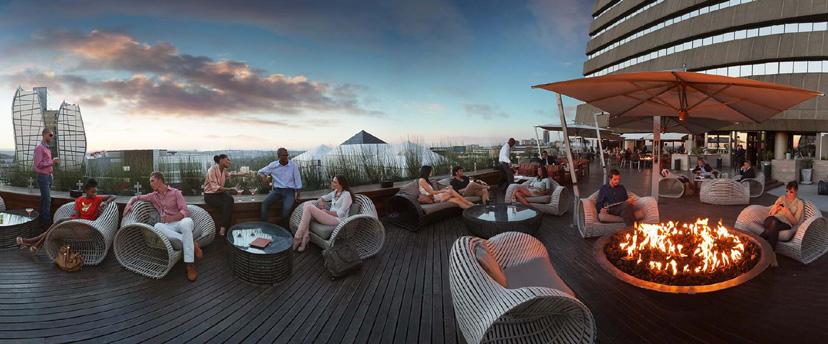
Destination South Africa: Your next business travel and event opportunity
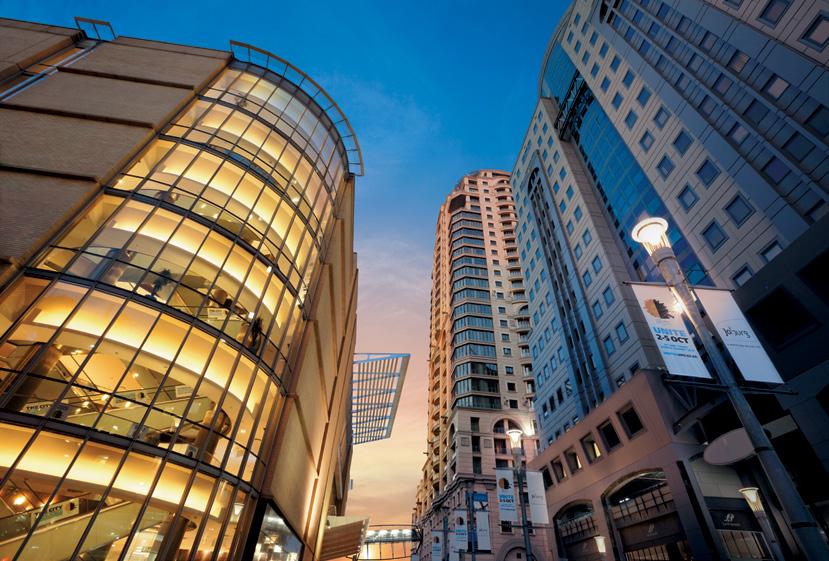
CULTURAL DIVERSITY | EXCEPTIONAL BUSINESS EVENTS SERVICES
VALUE-FOR-MONEY | RICH UNIQUE EXPERIENCE OFFERING
Our doors are open to live again.
HOW THE SANCB IS WORKING TO UNLOCK ECONOMIC OPPORTUNITY IN SOUTH AFRICA
The South Africa National Convention Bureau (SANCB), the official business events arm of South African Tourism, is working together with key role-players along the business events and tourism value chain to promote the country as an ideal destination for meetings, events and incentive travel.
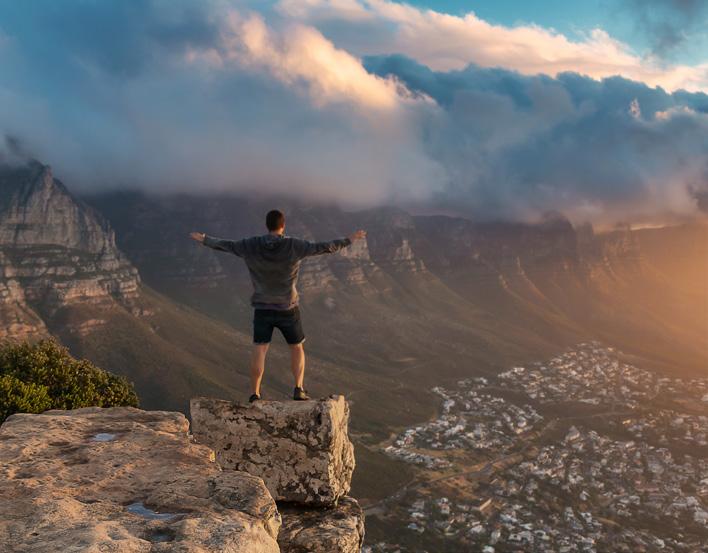
Through its Open Doors campaign, the SANCB hopes to showcase the most unique aspects of what each international delegate and traveller can experience when they visit Destination South Africa.
Here are just some of the exciting meeting and events experiences on offer in each of South Africa’s 9 provinces:
• Eastern Cape - tinyurl.com/SATEasternC
• Free State - tinyurl.com/SATFreeState
• Gauteng - tinyurl.com/SATGP
• KwaZulu-Natal - tinyurl.com/SATKZN
• Limpopo - tinyurl.com/SATLimpopo
• Mpumalanga - tinyurl.com/SATMP
• North West - tinyurl.com/SATNorthWest
• Northern Cape - tinyurl.com/SATNorthernC
• Western Cape - tinyurl.com/SATWesternC
South Africa is brimming with economic
possibilities. Together with an abundance of diverse natural, cultural and historical hotspots, the country is an exciting destination for business and leisure travellers alike.
The SANCB’s Open Doors campaign spotlights some of the country’s top economic sectors as key investment opportunities. Some of these include:
LIFE SCIENCES
South Africa has always actively contributed to the growth of the sciences and technology. Ever since the country’s monumental contribution to the surgical industry in 1967 with the world’s first human-to-human heart transplant performed by Dr Christiaan Barnard, the country hasn’t stopped innovating in this space.
MINING & METALS
Mining in South Africa has been synonymous with the country since 15-year-old Erasmus Stephanus Jacobs discovered South Africa’s
INFORMATION & COMMUNICATIONS TECHNOLOGY
South Africa has a well-established and sophisticated information and communications technologies (ICT) sector. It is, in fact, the largest and most advanced on the continent.
BUSINESS PROCESS OUTSOURCING
South Africa has established itself as a lucrative outsourcing hub with an incredible overall quality of services offered.
CREATIVE INDUSTRIES
South Africa’s creative industry is dominated by the film sector, as well as a vibrant arts and crafts industry.
MANUFACTURING
South Africa has developed an established and diversified manufacturing sector that has proven to be resilient and competitive in the global economy.
 first diamond, the Eureka, in Hopetown in 1867.
first diamond, the Eureka, in Hopetown in 1867.
southafrica.net
The SANCB is well versed in the art of hosting business events and bringing together exciting travel experiences for delegates. With a wide support network, the convention bureau has several means of achieving this:
BIDDING SUPPORT
In the Bidding Support phase, the SANCB can provide the following support:
• Pre- and post-bid support such as bid promotion and handling of requests for proposals
• Independent advice when selecting a destination for your event
• Bid materials to provide support to members
• Government Letters of Support
• Bid presentations
• Lobbying and promotional support, among other services
CONVENTION PLANNING SUPPORT
The SANCB, with the city and provincial bureaux, is perfectly positioned to assist with planning a congress, meeting, expo or convention in South Africa. Their team has effective working relationships with an extensive database of local service providers. The SANCB can also facilitate collateral materials, government liaison and advice on the destination and local issues. Key services during the convention planning stage include:
a) Sourcing venues
b) Locating suppliers
c) Compiling cost estimates conferences
d) Submitting and monitoring RFPs
e) Coordinating site inspections
f) Advising on pre- and posttour opportunities
ON-SITE EVENT SERVICES
On-site event services are vital as they add remarkable value to a delegate, especially if the delegate is visiting South Africa for the first time. These services are the little things that can
SITE INSPECTION SUPPORT
Site inspections showcase the elements included in the destination’s bid and are part of the SANCB’s service offering. The SANCB, in conjunction with the city and provincial convention bureaux, organises and facilitates site inspections to assist association heads and business-event decision-makers by introducing them to the event professionals who will bring their meeting, conference, event or incentive to life. The SANCB will invite key decision-makers to view options to help confirm the conference offering, including pre- and postshow opportunities. Site inspections are a crucial part of the decision-making process for business events. The venue must be conveniently situated close to transport routes and important amenities and must boast the facilities and luxuries that befit a business traveller and conference delegate. The venue must be secure and attractive, with state-of-the-art infrastructure and technology, as well as excellent cuisine and a wide range of culinary and beverage options. Site inspections also reinforce the benefits of hosting a conference in South Africa and dispel negative preconceived notions. The benefits are:
• South Africa is a cost-effective destination with attractive exchange rates
• South Africa is a world-class destination
• Delivery of world-class services and experiences that are on time and bring the WOW factor
• South Africa is a secure and harmonious nation
• The opportunity to leave a lasting impression
• Political/economic stability
• South Africa is an innovative and advanced nation
• South Africans are warm, welcoming and professional. Furthermore, well-coordinated site inspections give decision-makers key insights into the wide variety of venues available in the chosen city. This allows decision-makers to make their choices based on the facilities and location that best suits the conference attendees
happen on-site that make a big difference to the delegate’s experience. The SANCB is proud to offer on-site event services as part of its range of support services. The objective of this service offering is to enhance the delegate’s experiences and put into perspective the value of the delegate’s visit to our country, over and above the value of
DELEGATE BOOSTING
The SANCB can coordinate efforts to increase the number of delegates attending a business event in partnership with the association. It is in the best interest of all involved to have the maximum number of delegates attend an event, which in turn boosts the success of the event. The SANCB can assist associations to promote and market a convention in a number of ways, including promotional material, special services and cultural displays.
The SANCB offers three packages to assist with delegate boosting:
• The Standard Package
• The Standard Plus Package
• The Elite Package
The evaluation criteria for choosing one of these packages includes:
• Being part of an international association agenda
• Support provided in the bidding phase
• Delegate numbers (and the countries they are from)
• Seasonality
• Duration
• Economic development criteria
Delegate boosting packages include a range of offerings, including tourism information giveaways, branding, electronic and print marketing material, destination marketing material, and (in the Elite Package) VIP gifting, wine and drinks activations and customised marketing materials.
the conference programme itself. Some examples include:
• Cultural entertainment
• Welcome stands and airport transfers
• Activity/local attraction bookings
• Travel arrangements and activities for accompanying persons
• Personalised gifts
01 04 02 05 03






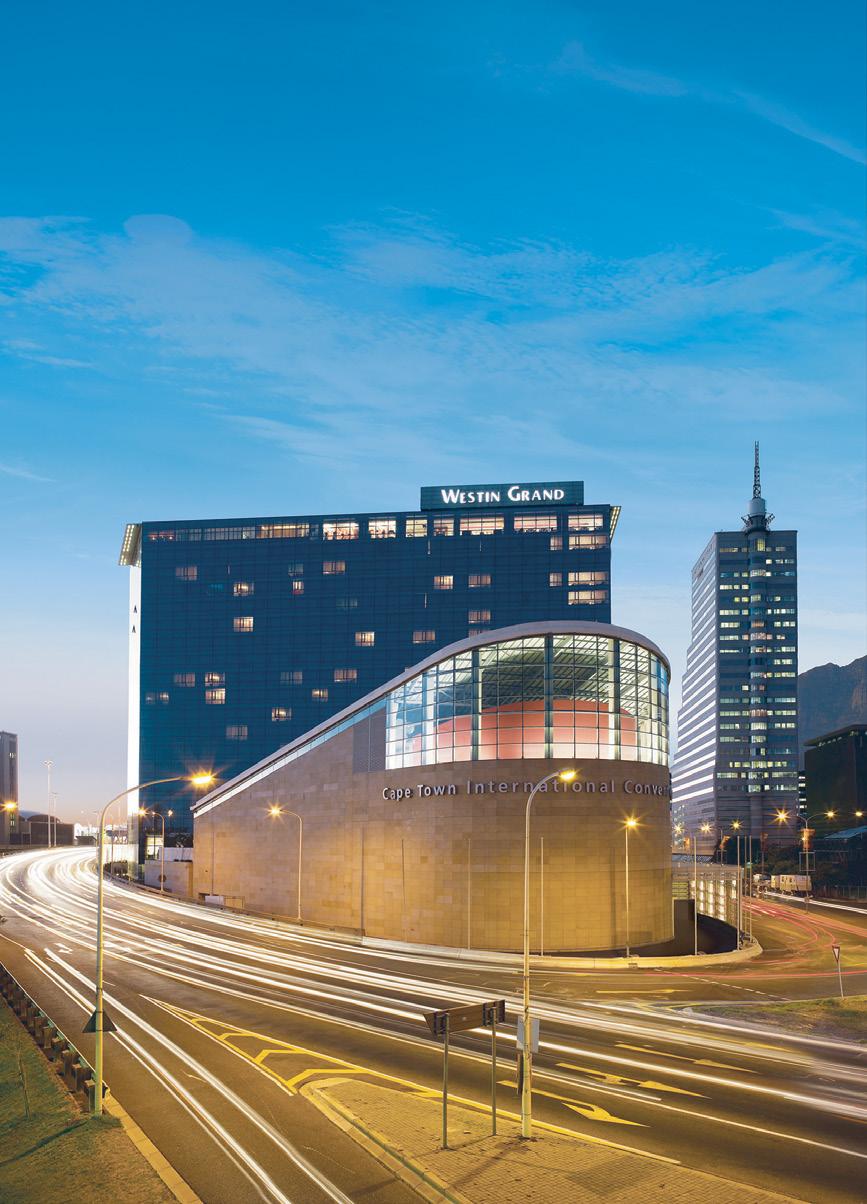
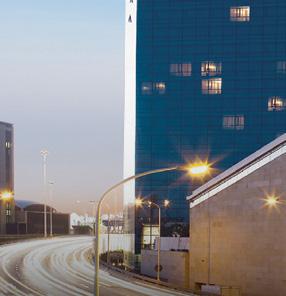
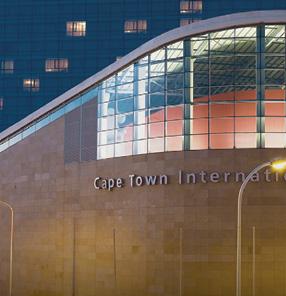
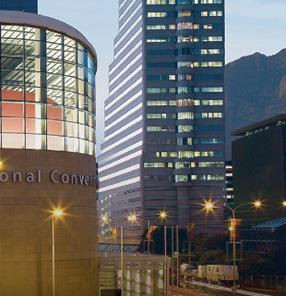


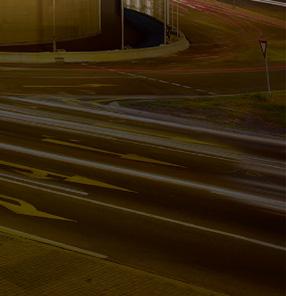
Impact of Covid-19 on business travel
The South African government effected measures on the 26th March 2020 to protect its citizens from Covid-19, including restricting local and international travel.
This introduced extensive challenges for tourism, and business travel was not spared. According to South African Tourism stats, of the 562 recorded business events scheduled between April - December 2020, 64% of conferences and 36% of tradeshows were postponed, cancelled or went hybrid.
The world is now trusting enough to open its borders largely due to vaccination programmes rolled out globally. South Africa's borders were opened to international travellers from 1 October 2020. South Africa is ready to welcome the world and rebuild chambers of industries. When you visit South Africa, it’s more than its doors that will be open. Eyes and minds will be open and though one might arrive intrigued, you will leave inspired!
South Africa as a Business Events Destination
South Africa is a top contender as a destination for any business event. If you’re looking to host a health conference, doesn’t it make sense to host it in the home country of one of the world’s most inspired thinkers in the fields of public health and infectious disease? But besides achievements, the country is much-loved for its cultural diversity, exceptional business events services, value-for-money, and rich unique experience offering. Added to that all business event venues adhere to strict health protocols to ensure delegates interact safely together with peace of mind.
Achievements in the Life Science Sector
South Africa has sectors that contribute to the gross domestic product. Of these, life sciences faced major challenges during the lockdown. However, the pandemic inadvertently showcased the country’s ability to respond to a changing global landscape to address the challenges of the day.
By cultivating a spirit of optimism, whilst acknowledging collective social and economic challenges, South Africa punched above its weight and built on its incredible achievements - further stamping the country as one of the leaders in medical innovation. South Africa conducted the most testing in Africa for Covid-19, alerted the world of the infectious nature of the Delta variant, thanks to incredible local genomics institutes, and ran its own National Ventilator programme to produce ventilators for local use and export.
South Africa is also the home of Dr Salim Abdool Karim, an instrumental advisory figure in the fight against Covid-19, jointly awarded the prestigious 2020 John Maddox Prize for standing up for sound science during the pandemic alongside Dr Anthony Fauci (United States).
If you are looking to shape and inspire forward-thinking with your next event to capitalize on opportunities across the globe, look no further than South Africa. Its doors are open, and the warmth of the people makes this a business events destination that moves you as it hosts you.
[1] Bartis, H., Hufkie, B & Moraladi, M. (2021).The Economic Impact of the COVID-19 Pandemic on the Business Events Sub-sector in South Africa.
SOUTH AFRICA’S DOORS ARE OPEN
22
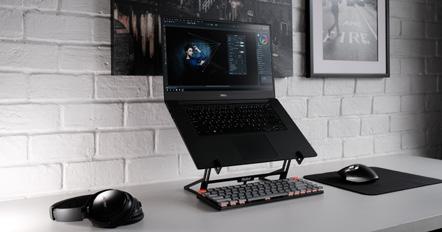





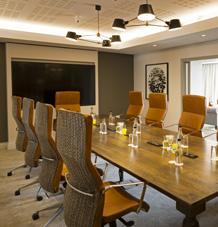
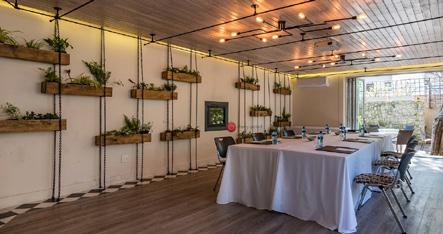
Leroy
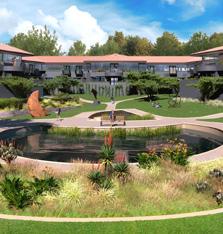
CONTENTS MARCH/APRIL 2022
Planner
with us
@theplannerguru The Planner @theplannerguru the-planner-guru
COVER STORY: BULLSEYE Meetings magazine sees why Fancourt hits the nail on the head as a conference venue.
BIG INTERVIEW: BRINGING OUT THE BEST IN PEOPLE
The
is
growing its footprint – connect
today!
06
08
Ferreira, sales and marketing director Fancourt, shares his views on navigating the challenges of Covid-19 and prospects for the future of this South African golfing paradise.
FOCUS MICE building blocks
POST-EVENT REPORT #MeetingsAfrica22
ACCOMMODATION Accommodation innovation
VENUE PROFILE Durban ICC
MEETING SPACES An intimate affair
10
12
15
16
20
MICE MARKETS Africa’s Big Five 5
BEST PRACTICE Analytics
REMOTE WORKING #WorkAnywhere
INNOVATION Hacking your team 35 DESTINATION PROMOTION MICE in Mauritius REGULARS 02 Ed’s Comment 03 Tidbits 36 Soundbite 40 Miss Meet INDUSTRY INSIGHTS 19 Neil Nagooroo – Flock Eventing Platform 34 Amir Golbarg – Minor Hotels TALKING POINTS 37 AIPC 38 EGF + AAXO 39 SAACI + SACIA 06 20 28 15 30
26
28
30
RESOURCES VERSUS RECOVERY
Publisher Jacques Breytenbach
3S Media
Production Park, 83 Heidelberg Road, City Deep, Johannesburg South, 2136
Tel: +27 (0)11 233 2600 Fax: +27 (0)11 234 7274/5 www.3smedia.co.za
Meetings MARCH/APRIL 2022 © Copyright 2022. All rights reserved. www.theplanner.guru


SUBSCRIPTION
R330.00 per annum (incl. VAT) | subs@3smedia.co.za



ISSN 1684-9264
NOTICE OF RIGHTS Meetings is published bi-monthly by 3S Media. This publication, its form and contents vest in 3S Media. All rights reserved. No part of this book, including cover and interior designs, may be reproduced or transmitted in any form or by any means, electronic or mechanical, including photocopying, recording or by any information storage and retrieval system, without permission in writing from the publisher, nor be otherwise circulated in any form of binding or cover other than that in which it is published and without a similar condition being imposed on the subsequent purchaser. The authors' views may not necessarily reflect those of the publisher or associated professional bodies. While every precaution has been taken in the preparation and compilation of this publication, the publisher assumes no responsibility for errors, omissions, completeness or accuracy of its contents, or for damages resulting from the use of the information contained herein. While every effort has been taken to ensure that no copyright or copyright issues is/are infringed, 3S Media, its directors, publisher, officers and employees cannot be held responsible and consequently disclaim any liability for any loss, liability damage, direct or consequential of whatsoever nature and howsoever arising.
MEMBER OF IN COLLABORATION WITH

The ABC logo is a valued stamp of measurement and trust, providing accurate and comparable circulation figures that protect the way advertising is traded. Meetings is ABC audited and certified.

The business events and tourism industry is clearly the place to be right now, and is a hive of activity!
We see this through the pages of this edition of Meetings as we speak to a host of experts from across the length and breadth of the industry – from Neil Nagooroo at Flock Eventing Platform on page 19 to Amir Golbarg from Minor Hotels on page 34, we cover it all!
As we start looking forward to the recovery of the business events industry in South Africa – as evidenced during Meetings Africa (read our post-event coverage on page 12) – the announcement by President Ramaphosa on 22 March 2022 that lockdown restrictions will be further eased with immediate effect almost certainly means more activity. This may mean there is a much bigger pie to go around – perhaps more than what we can currently manage!



We have sadly seen an exodus of businesses and skilled individuals within the MICE sector, which is understandable, as people needed to find the means to survive and provide for their families. It does, however, leave us with a significant challenge in finding and allocating resources to address the influx of projects in the pipeline.
This is a particular concern among remote workers, who often feel out of their depth and disconnected. Read more about this on page 28.
AFRICA’S BIG FIVE
While the business events and tourism sector took a huge knock during the Covid-19 pandemic, we can turn to page 22 to learn more about Africa’s Big Five MICE destinations. This is based on findings from the African Perspective on the MICE Industry Report 2021’s MICE Industry Maturity Index, which closely examines the structure of each of the countries it has profiled. In line with this, on page 18, we examine convention bureaus from across the world, locally, within Africa and the rest of the world.
Lastly, with the industry picking up so much pace, we hear from a range of events industry role players and key association heads on page 18 on how we can most effectively handle our recovery. While uncertainty currently prevails, the increased activity is exceptionally positive. And, if the pandemic taught us anything, it is that two heads are better than one. Now, more than ever, we need to collaborate on how we move forward without it compromising our well-being and reputation or our precious project pipeline.
Until next time, stay strong and well,

www.theplanner.guru MEETINGS l MARCH/APRIL 2022 • 3
Shanna
With the industry beginning to look forward to recovery, it is only a matter of time before we experience a capacity crunch. So how do we manage?
Managing Editor Shanna Jacobsen (shanna@3smedia.co.za)
Sub-Editor
Head of Design Beren Bauermeister Contributors Sven Bossu, Glenton de Kock, Kevan Jones, Scott Langley, Projeni Pather, Morwesi Ramonyai Production & Client Liaison Manager Antois-Leigh Nepgen Group Sales Manager Chilomia Van Wijk Bookkeeper Tonya Hebenton Distribution Manager Nomsa Masina Distribution Coordinator Asha Pursotham Advertising Vanessa De Waal +27 (0)84 805 6752 | Vanessa.DeWaal@3smedia.co.za PUBLISHED BY
Chief
Tristan Snijders
ED’S LETTER
Eswatini Air set to take off in June
An Eswatini-based start-up has its sights set on the skies and intends to launch four routes by the end of June. The airline is expected to be an economic driver, with the new airline playing a key role in connecting the kingdom and significantly enhancing tourism and trade links in particular, in addition to having spin-off benefits such as job creation.
“The absence of a national airline is undermining the country’s economic growth, according to an assessment made by the government,” noted Xavier Masule, commercial director for the Royal Eswatini National Airways Corporation, Eswatini Air’s parent company.
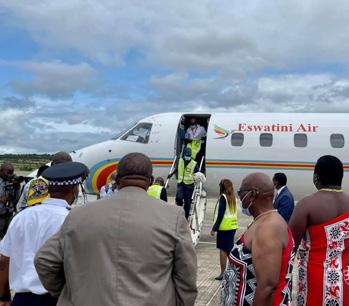
Eswatini, formerly Swaziland, is Africa’s smallest landlocked country and is roughly 800 km 2 smaller than South Africa’s Gauteng province.
Aleph Hospitality debuts in Rwanda
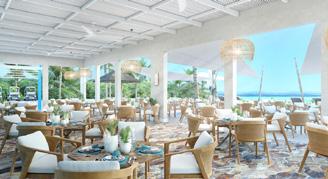
Aleph Hospitality has made an entry into Rwanda with the signing of a contract for the management of a five-star hotel in the nation’s capital, Kigali. The agreement means that Aleph will operate Accor’s luxury MGallery hotel and facilities at the new Century Park Hotel and Residences.
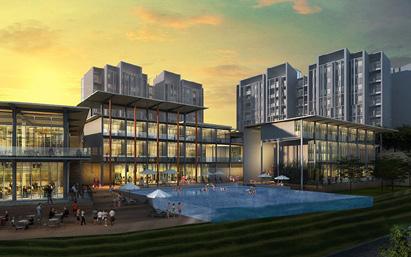
A signing ceremony took place on 3 March 2022 between Aleph Hospitality, Accor, and the developers of the project, Century Park Hotel and Residences.
“We are very excited to be part of this incredible new mixed-use development in Kigali, which marks our first entry into Rwanda,” Bani Haddad, founder and managing director of Aleph Hospitality, was quoted as saying.
Aleph has an aggressive growth plan for the Middle East and Africa, targeting 50 hotels across the region by 2026.
UK-based event tech firm raises $2 million in seed capital
Event technology firms are continuing to demonstrate a strong appetite for growth, with one of the latest developments taking place in the UK.

Tevent, a technology platform for virtual events, has raised US$2 million (R30 million) in seed capital to support product development. Verified Market Research projects that the global virtual event platform market size will reach $22.75 billion (R342.3 billion) by 2028.

“We are on a mission to make connections engaging, accessible and sustainable. Tevent gives you the tools to create engaging virtual events that facilitate meaningful interactions and lasting connections. We are working towards making remote a viable alternative and building a sociable, sustainable and connected future,” comments Ahmed Amer, a co-founder and the CEO of Tevent.
Blue Amber development in Zanzibar progressing well
The construction of the Blue Amber development in Zanzibar is now well underway, with developers reportedly saying that the property will open in phases from 2023. Blue Amber, located in the Matemwe area around the north-eastern coast of Zanzibar, is said to be the largest development of its kind in Africa. The mixed-use development is recognised as a strategic investment project and will be home to international hotel groups, luxury homes and East Africa’s first Signature Championship golf course.
Phase 1 of the development is offering a variety of off-plan villas for sale and includes a leisure centre and beach restaurant, with panoramic views of the Indian Ocean. Two-bedroom villas start from US$197 125 (R2.86 million) with Blue Amber also providing buyers with an optional fully integrated property management service to manage their property.
Meetings’ must-know minutiae
4 • MEETINGS l MARCH/APRIL 2022 www.theplanner.guru
87% of marketing professionals use video as a successful marketing tool.
Marketers making use of video get 66% more qualified leads per year.
Video engages users for longer on a website. The average user spends 88% more time on a website with video content.
3S Media provides the interface to host, manage and broadcast live as well as on-demand webinars.

Our platform ensures the highest quality video and audio technology. This ensures flawless digital broadcasting by using enterprise-grade streaming solutions.

Book your webinar today and participate in robust thought-leadership panel discussions and anchor desk interviews with captains of industry.
3S Media offers robust thought-leadership panel discussions and anchor desk interviews with captains of industry.

Webinars are ideal marketing platforms for product launches, training events and industry announcements. Our platform ensures the highest quality video and audio technology.
Novus Print (Pty)
3S Media is a proud Level 2 BBBEE Contributor.
Novus Print (Pty) Ltd t/a 3S Media is a registered member of National Treasury’s Central Supplier Database for Government.
Supplier Number: MAAA0016423
(Optinmonster, 2019)
(Forbes, 2018)
(Wyzowl, 2019)
Unique Registration
Ref Number: FFA60BC9-37E6-4596-89D9-A00025D4C50F
where printing is personal CONTACT SALES: Vanessa de Waal t +27 (0)11 233 2624 c +27 (0)84 805 6752 e Vanessa.DeWaal@3smedia.co.za EDITORIAL: Shanna Jacobsen c +27 (0)79 884 6939 e shanna.jacobsen@3smedia.co.za
Ltd t/a
BULLSEYE
From intimate, luxury conference rooms to fully removable doors that convert the exhibition hall into a space big enough for a product launch, the Fancourt Conference Centre should be on your radar for your next corporate function.
So, how do you differentiate one conference venue from another?
At Fancourt, the answer is clear. Your choice of business venue should offer exclusivity, style and space that can be configured to your
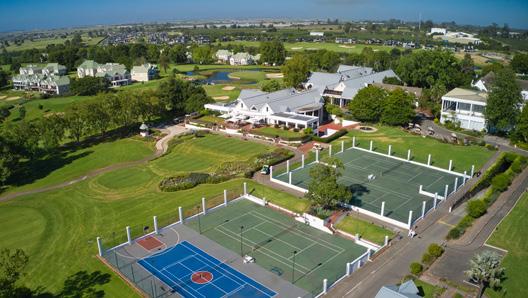
requirements, be it a launch for over a hundred people or a meeting for a few.
Fancourt takes it one step further with a team of conference specialists who will ensure a seamless technological interface and behind-the-scenes backup. Above all, they offer downtime on some of the country’s most renowned golf courses and at the award-winning spa, all with enviable mountain views thrown in for good measure. When you hit on that brilliant idea or lead up to that

quintessential launch, your colleagues and VIP guests will, no doubt, be applauding your choice of venue.
At Fancourt Business Centre, not only will you receive free parking, Wi-Fi and secure, private access to executive suites, but you will also savour the best in local produce – most of which is made on the property. But more than that, and top of mind for most guests, there is a focus on health and safety.
CONFERENCE CUISINE
The hotel believes that every conference or meeting should start with a delicious buffet breakfast. In fact, it takes this buffet so seriously that it has a team of specialist chefs trained in the art of making the perfect egg, while all bread and confectionaries, as well as cured hams, are made in-house. Even the honey is sourced from the estate apiary.
The executive chef will design a custom menu for your guests, while the hotel’s dedicated team of on-site coordinators will arrange the room and your itinerary to make sure everything runs like clockwork – all under strict hygiene practices, audited by an external company that does regular laboratory tests on food products, hands and work surfaces. Executive Chef Desmond Morgan says temperature checks are recorded daily and measures include colour-coded chopping boards and live cooking stations for breakfast with screens and cooked-to-order meals.
COVER STORY
Meetings magazine sees why Fancourt hits the nail on the head as a conference venue.
6 • MEETINGS l MARCH/APRIL 2022 www.theplanner.guru
“All the halfway houses also have their own kitchens and meals are prepared to order,” Desmond explains.
The wide range of options on offer caters to specific diary requirements like halaal, vegan or vegetarian.
THE ART OF CONFERENCING
If space is a luxury, this hotel celebrates every inch of it, with over 600 hectares on offer. Add that to strict protocols with the ongoing training of staff to adhere to the highest sanitation standards and you have nothing to worry about beyond that next big business breakthrough.
From the smallest executive boardrooms to the large hall, the mood lighting, contemporary design and attention to detail make every space look and feel unique – no matter the conference size, occasion or budget.
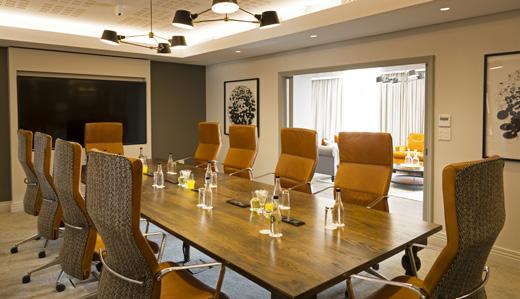
INNOVATIVE THINKING ON SHOW
The hotel is known for its high standards and spirit of service, which is why it provides business offerings within its Gary Playerdesigned golf courses. ‘Work hard and play hard’ is an adage that perfectly explains the philosophy behind the state-of-theart amenities.
Even before guests arrive, the hotel has apps and online tools that take the hassle out of booking and planning. And if you are stuck for theme and decor ideas, you can always ask the Fancourt team for a database of service providers to elevate your experience.
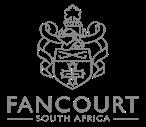
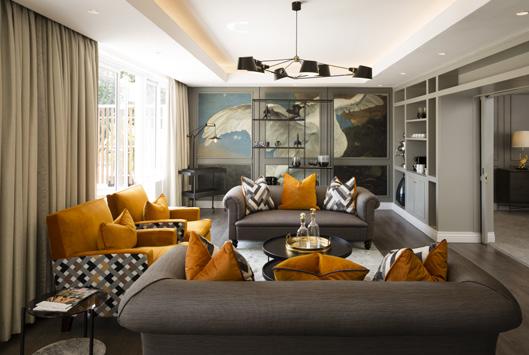
SECURE AND CENTRAL FOR VIPS
It’s hard to find a centrally located hotel that offers the big three in VIP security – safety, privacy and access. The hotel delivers, with a single, one-way road that loops around the hotel to ensure secure access and executive suites that offer apartment-style privacy, including private, dining and lounge areas. It’s no wonder these suites are a firm favourite with celebrities, film crews and government officials alike.
BUSINESS PLAYGROUND IN ONE LOCATION
The key to any successful conference is how delegates can spend their precious downtime without having to fuss over planning. Here, again, guests are spoilt for choice. They can book a treatment with the expert Spa at Fancourt therapists, languish in the oxygenated Roman baths, or enjoy some relaxation in the terrarium, jacuzzi or sauna. Or guests can enjoy the Leisure Centre and Poolside Café, where a heated indoor or outdoor pool is available. Guests are invited to rent a bike and explore the estate or take a designated 3 km, 5 km or 10 km walk through the established gardens and manicured courses. Enjoy a coffee and croissant at Monet’s, after-conference cocktails on the deck of The Club Lounge, or dinner at La Cantina – never once having to exit the resort. There can be no doubt: Fancourt is a business playground. You can even invite your mates around to watch the game (complete with drinks and snacks) on an ultra-large television in the lap of luxury. And to top this all off, the hotel is a mere 10 minutes from George Airport, which hosts several airlines now flying directly to George from Johannesburg and Cape Town.
#FANCOURT
+27 (0)44 804 0000 @Fancourt.SA reservations@fancourt.co.za www.fancourt.co.za @FANCOURTSA @fancourtsa
At Fancourt, the answer is clear. Your choice of business venue should offer exclusivity, style and space that can be configured to your requirements, be it a launch for over a hundred people or a meeting for a few
Bringing out the best in people
Like all other hospitality properties, Covid-19 caused a radical shake-up to Fancourt’s operation.
“The initial stages of getting to grips with a national lockdown involved making contact with guests and commercial partners to discuss the cancellation of existing as well as
ABOUT LEROY FERREIRA
Leroy Ferreira is currently the sales and marketing director at Fancourt, where he was previously a business development manager and also held the position of banqueting manager.
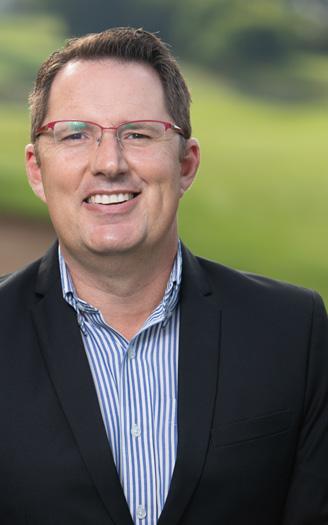
Leroy is responsible for ensuring Fancourt maintains its position as one of South Africa’s top venues while meeting its hotel revenue related strategic targets.
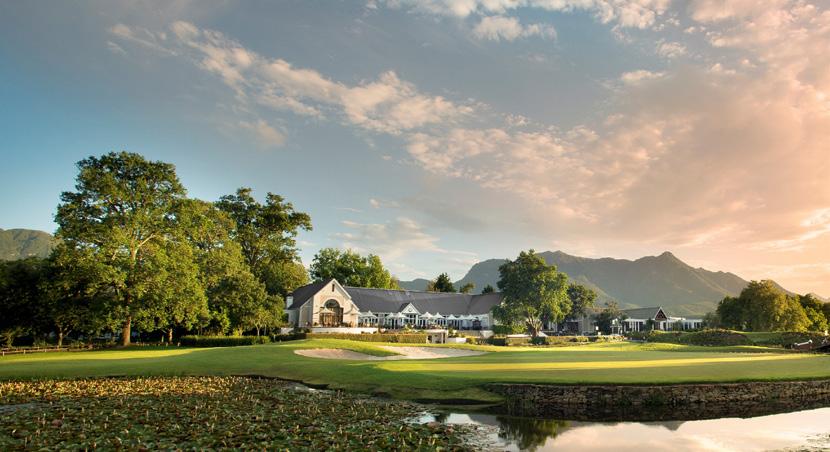
Leroy originally hails from Despatch in the Eastern Cape and completed high school at Despatch High School in 1995. His studies after high school saw him complete diplomas in bookkeeping and computer hardware and software maintenance, as well as human resources management.
future bookings,” says Leroy Ferreira, sales and marketing director at Fancourt.
Learning and accepting that they simply did not know the extent of what was going on was an aspect that staff and role players at Fancourt had to make peace with.
“For the first time in our lives, not knowing was accepted,” adds Leroy.
So how extensively was Fancourt affected during the pandemic?
“While the shutdown of hotel and golf operations was loosely based on an existing disaster management plan, Fancourt is also home to an entire community of residential members. When restrictions to golf courses and restaurants were lifted, our members immediately started supporting the golf operations and restaurants in numbers,” Leroy remarks.
Fancourt’s strategy was centred around making sure its facilities remained in tip-top condition throughout lockdown so that the venue had the best possible chance at success when reopening. Further, a team of hardworking greenskeepers and key personnel received permission to remain on-site to take care of the areas that were most at risk if not maintained during the months Fancourt was closed.
FANCOURT’S PROMISE AND VALUES
Fancourt has worked hard to keep its promise to its patrons and, as a team, adopted company values that include the following:
• Communication – first, with each other and then with stakeholders that include its members and guests.
BIG INTERVIEW
Leroy Ferreira, sales and marketing director at Fancourt, shares his views on navigating the challenges of Covid-19 and prospects for the future of this South African golfing paradise.
8 • MEETINGS l MARCH/A PRIL 2022 www.theplanner.guru
• Accountability – Fancourt’s staff pride themselves on being accountable for their actions and decisions, realising the impact these can have on stakeholders.
• Responsibility – in a time of recovery and rebuilding its hotel and golf operations, Fancourt hasn’t forgotten its responsibilities towards the hospitality industry and golfing community.


• Empathy – in order to communicate better, Fancourt believes it must be accountable
FANCOURT – A GLOBAL GOLFING GEM
Over the past year, Fancourt is honoured to have received international acclaim as one of Southern Africa’s leading resorts. The resort is ranked 13 on the Golf World Top 100 Golf Resorts (2022) and among the best golf resorts on the planet, holding its own among other luminaries like Gleneagles in Scotland, Pebble Beach in the USA, and La Cala in Malaga, Spain.
The Links golf course, with undulating grassy hills, was designed to emulate the courses in Scotland and Ireland, and designed by a dynamic team spearheaded by legendary golfer Gary Player. It’s ranked the top golf course in South Africa and 56th in the world by Golf Digest USA. Its sister golf courses, Outeniqua and Montagu, are ranked among South Africa’s Top 20 for their playability, architecture and charm.
Fancourt proudly holds the title as Africa’s Leading Resort 2021 bestowed by the World Travel Awards and was recently voted South Africa’s Best Golf Hotel for the third year running by the World Golf Awards. Embodying a flawless fusion of leisure and world-class golfing, Fancourt offers 115 stylishly appointed rooms, several eateries with locally sourced produce, an award-winning spa with oxygenated Roman baths, as well as an entertainment and sports centre, its own Golf Academy and practice facilities.
and responsible but to do it with empathy and care.
Together, this acronym spells CARE – and this is at the very heart of Fancourt’s values and the human element it upholds.
FUTURE-PROOFING FANCOURT
Fancourt is working hard to ensure its operation is as sustainable as possible and understands the importance of being a diverse, equitable and inclusive business.
“Diversity and inclusivity have always played a huge part in the making of Fancourt. With a team of more than 550 members, the Fancourt team is the epicentre of diversity and inclusivity. Thus, Fancourt has established itself as a preferred employer both in the region and nationally,” comments Leroy.
In addition, the Plattner family, who owns Fancourt, has made significant contributions to the local community and continues to have a direct influence through its involvement in the George Child and Family Welfare Association. Over the past 26 years, Fancourt has made sure that the surrounding communities are the main benefactors of its own CSR investments and activities.
“In an uncertain world and as we move towards a post-Covid recovery, the only real value that one can uphold is one’s name. With Fancourt, we back the brand. The Fancourt brand that is proud in dealing with all stakeholders in a communicative, accountable and responsible way, with empathy to ensure that we remain a world-class facility and a desirable place to reside,” concludes Leroy.
+27 (0)44 804 0000 @Fancourt.SA reservations@fancourt.co.za www.fancourt.co.za @FANCOURTSA @fancourtsa #FANCOURTCARES
In an uncertain world and as we move towards a post-Covid recovery, the only real value you can uphold is one’s name.”
MICE BUILDING BLOCKS
KENYA

The Kenya National Convention Bureau (KNCB) is the authority responsible for overseeing the MICE industry in Kenya. Officially launched at the ICCA Africa meeting in June 2021, the KNCB is one of Africa’s newest convention bureaus. In making a case for the development of MICE within the country, it says: “While the meetings industry is often regarded as a tourism market segment delivering tourism-related benefits, there is growing awareness globally that the MICE industry plays a significant role in socio-economic development… This places the MICE industry at the very centre of the global economy and the underlying scientific, professional, academic, business, and social advancements that drive it. Meetings play a key role in strengthening a nation’s global trade and intellectual engagement, which in turn helps drive the development of its knowledge and creative economies.”
SOUTH AFRICA EGYPT
South Africa has a well-established network of convention bureaus, with the South Africa National Convention Bureau (SANCB) leading the charge as the official business events arm of South African Tourism. Each province either has a dedicated tourism authority or its own locally established convention bureau to support business events in each region. While each regional convention bureau or representative body has its own strategy, the SANCB has well-defined bidding support and delegate boosting programmes to encourage and provide the backing for business events in each province. This is further bolstered by its strategy to promote South Africa as a destination for business events, most notably with the roll-out of its villages, towns and small dorpies (VTSD) initiative. The VTSD programme has targeted several key areas outside of South Africa’s major metropolitan areas with the aim of creating a spin-off of economic benefits into the country’s less frequently travelled vicinities.
• Mpumalanga (www.mpumalanga.com/conventions-bureau)
• Western Cape (www.wesgro.co.za/convention-bureau/home)
• Gauteng (www.gauteng.net/pages/about-gceb)

• KwaZulu-Natal (www.durbankzncb.co.za)
• Eastern Cape (visiteasterncape.co.za)
• North West (www.tourismnorthwest.co.za)
• Northern Cape (www.experiencenortherncape.com/visitor)
• Free State (www.gla.fs.gov.za)
• Limpopo (golimpopo.com)
Egypt has what is possibly one of the oldest convention bureaus in Africa, having been established in 1956 as the then General Organization for International Exhibitions & Fairs.
The Egypt Expo & Convention Authority (EECA) is both a business events venue located in the heart of Cairo, the North African nation’s bustling capital, and the official authority on organised events within Egypt.
It is responsible for overseeing conventions, fairs and tradeshows within Egypt and internationally, as well as issuing licences for locally hosted exhibitions.
Unlike most convention bureaus that are linked to either investment promotion agencies or tourism bodies, the EECA forms part of the country’s Ministry of Trade & Industry. In May 2008, the EECA was born from a consolidated group of bodies, namely the Cairo International Conference Centre and the Egyptian General Authority for Exhibitions and International Markets.

Just over a year later, in October 2009, a presidential decree mandated that the newly formed Exhibitions and Conferences International operate as the Egypt Expo & Convention Authority.

10 • MEETINGS l MARCH/APRIL 2022 www.theplanner.guru
FOCUS
A convention bureau is a fundamental aspect of every established MICE market. Meetings delivers an overview of some of the offerings provided by convention bureaus – both locally and internationally – to understand the role they play.
EUROPE
Based on ICCA statistics, as a region, Europe hosts the most international association events globally. It is therefore no surprise that several countries’ convention bureaus have come together to form the Strategic Alliance of the National Convention Bureaux of Europe.
According to its website, “[This body] is a network of national destination marketing organisations. As a collaborative industry platform, it concentrates on strengthening Europe’s position as a leading destination for international business events. Since its foundation in 2014, the initiative of European convention bureaux has increasingly gained importance as a platform for exchanging experiences and knowledge transfer between the membership countries.”

Among its members are 28 European convention bureaus that have come together to exchange experiences, engage in knowledge transfer between membership countries, and identify areas of collaboration.

The Strategic Alliance of the National Convention Bureaux of Europe was officially announced at IMEX 2014 in Las Vegas, USA, and launched with nine founding countries. Since then, it has met twice a year, with host destinations being rotated. One of its major areas of focus is providing access to joint projects, including research on source markets and growth opportunities for European destinations.
UNITED STATES OF AMERICA INDIA

ICCA figures reveal that the USA is the world’s leading country for the hosting of international association events. The body responsible for organising international meetings, events and conventions in the country is the American CVB. It also manages domestic and international groups and provides access to numerous venues across the country, including in what is termed ‘Small Town America’.
Services offered by the American CVB include convention planning, site inspection and selection, promotion and publicity, international transportation, entertainment and tours, and visa processing, among other aspects.
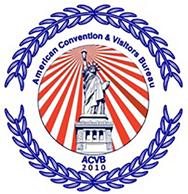
With more than two decades of hotel management, the American CVB touts itself as “the veterans of the hospitality industry”. Its staff are both well travelled and well versed on the challenges of international and multicultural event management, and can provide access to numerous meeting and conferencing facilities across the country. This extends to more than 20 000 meeting spaces for small to mid-sized events.
The India Convention Promotion Bureau (ICPB) “is the only travel industry body with participation from the entire MICE industry, with members from state governments, hotels, airlines, tour operators, travel agents, professional conference organisers, event managers, educational institutions and more,” according to its website.
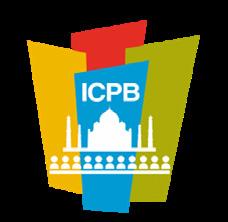
As well as promoting India as an ideal conference destination and attracting delegates to the country’s shores, the ICPB strives to raise awareness around the benefits of hosting meetings and events that are in line with India’s economic objectives. It also hopes to develop convention centres across India as well as professionalise the MICE industry to elevate the country as a preferred global destination. The ICPB regularly conducts seminars and hosts forums between Indian organisations and other relevant international associations and institutions to establish affiliations with world bodies that have similar objectives.
In addition to the sourcing of venues, the ICPB can assist with budgeting, registration management, marketing and promotion, sponsorship, exhibition organisation and management, accommodation, logistics and travel, and the development of incentive programmes.
www.theplanner.guru MEETINGS l MARCH/APRIL 2022 • 11
#CONVENTIONBUREAUS
MAKING THE MOST OF IT
Last year November, an announcement was made that both Meetings Africa and Africa’s Travel Indaba would be returning in 2022, setting the industry ablaze with excitement.
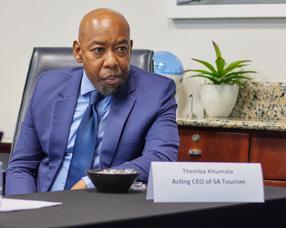
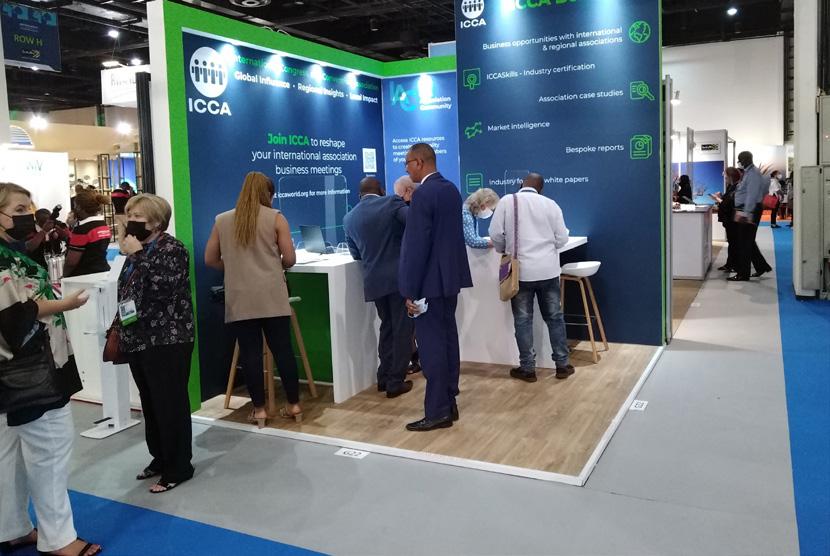
Recognising the need for the return of in-person events and face-to-face engagement, South African Tourism –together with its official business events arm, the South Africa National Convention Bureau (SANCB) – successfully launched the show on 28 February 2022, kicking off with the opening of BONDay (Business Opportunities Networking Day). Protocols such as pre-Covid-19 screening as well as the presentation of vaccine certificates demonstrated that events on this scale can take place safely, while traffic through entrances and exits was strictly managed, with delegates wearing RFID badges to track their movements throughout the day. Mandated sanitising and the wearing of masks was a standard health and safety measure that all were requested to adhere to.
MASTERING MICE
The Africa Business Tourism MICE Masterclass saw incredible participation from several role-players within the business events and tourism space, and welcomed some of Africa’s aspiring industry decision-makers, with the participation of students completing qualifications in both tourism and event management. The programme places a significant emphasis on creating equity and strives for the inclusion of small enterprises and up-and-coming entrepreneurs. Tourism authorities, the private sector, academic and training institutions, as well as women and the youth, also formed part of the discussion.
“This is the first Covid-19 environment opportunity for stakeholders to reconnect in person after a long break, to refresh their knowledge, gain insights to new trends, network and do business. It aims to capacitate professionals, practitioners, SMEs and youth with the skills to analyse the present to co-create a roadmap for the recovery of businesses events or MICE in the region,”
noted the organisers of the show in their communication.
Kwakye Donkor, programme director and CEO of Africa Tourism Partners, opened the show and underscored that the success of the business events and tourism industry lies in collaboration, while the Deputy Minister of Tourism, Fish Mahlalela, stated, “It is necessary for Africa to come together to share what the best way forward is for our recovery.”
Also speaking at the opening of the event was Amanda Kotze-Nhlapo, chief convention bureau officer of the SANCB, who highlighted the importance of getting the right people in the room at the same time.
12 • MEETINGS l MARCH/APRIL 2022 POST-EVENT
Like so many in-person business events, Meetings Africa took a break during Covid-19 but was back this year to deliver an impactful experience for the industry, and Africa. Meetings brings you the highlights of the show.
“It is not about the numbers. It is about the outcomes and conversation,” she said.
LET THE SHOW BEGIN
Minister of Tourism Lindiwe Sisulu was present for the official opening of the trade floor.
“Opening trade corridors across the continent must also open pathways for intraAfrican tourism to thrive, and vice versa. It is us – the African business events sector – that have to be intentional and strategic in ensuring that we leverage this mutual benefit between trade and tourism,” she commented, adding that the business events industry, as a platform for sharing information and collective engagement, serves as a catalyst for growth and development.
LIVE AGAIN
Meetings Africa also saw the launch of South African Tourism’s Live Again global campaign.
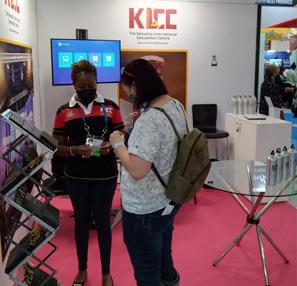
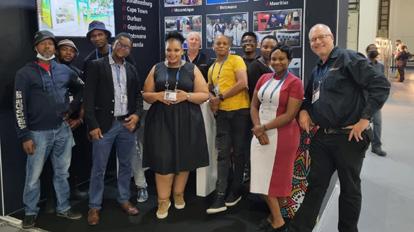
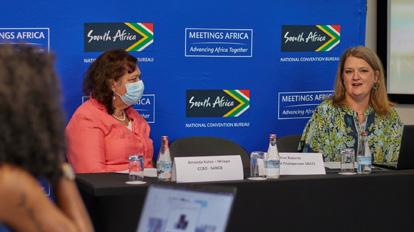
Speaking at the launch of the campaign was South African Tourism’s acting CEO, Mzilikazi Themba Khumalo, who said: “This campaign sums up South Africa’s resolve to not postpone living life to the fullest one moment longer. It taps into South Africans’ renowned optimism and resilience that have stood this nation in good stead at every turn when we faced seemingly intractable challenges. Through it all, we never lose our zeal for life and we’re inviting the world to approach the Covid-19 situation in the same way. We are inviting everyone to come experience the unique sounds and textures of South African cultures. We’re saying it’s time to ‘Live Again’ but to continue to observe Covid-19 safety protocols.
“The ‘Live Again’ brand campaign entails the country’s brand promise to deliver the ultimate leisure and business events travel experiences that will re-energise body, mind and spirit. Through the South African song created especially for the film – weaving in sounds and textures of this rich tapestry of people and experiences – we continue to extend our signature ho spitality with grace and gratitude.”
NOTE: South Africa welcomed 2 255 699 arrivals to its shores in 2021, which is promising for the recovery of the tourism sector. You can view the Live Again campaign here: www.youtube.com/watch?v=NVzFpVG4Jh8.
“This in turn results in innovation and reinvention, which are key for economic and professional development and advancement.”
Platforms such as Meetings Africa, said the SANCB’s Kotze-Nhlapo, allow the industry to come together as one.
“In our sector, while we are in competition, we are also in cooperation. And then, of
ICCA’S 2021 GLOBAL ASSOCIATION MEETINGS PROTOCOL
A key discussion during Meetings Africa revolved around ICCA’s 2021 Global Association Meetings Protocol.
“This new framework is based on insights from ICCA members and the association community who helped us determine how priorities and ways of working have changed during the Covid-19 pandemic. Our survey revealed four key pillars that are vital to moving the industry forward – sustainability, equity and legacy; advocacy and policy; crisis planning and mitigation; and sector and community alignment strategy. Within each of these pillars, we see a strong desire for our industry to take a central role and collaborative approach to driving change,” says the document.
course, we need to build on our brand together, go out there and tell the world that Africa is ready… It is a collaborative effort to go out there and bid for these big events. With our culture of sharing, we as a continent have the opportunity to rotate meetings among each other. We can help build that knowledge economy on the continent,” she concluded.
#MEETINGSAFRICA
After two years of shutting our imaginary national borders to each other, now is the time to allow for a freedom of movement. Sharing minds and economies does not mean we sit behind our desks and stare at each other through screens. It means being able to travel from one place to another freely so as to create and grow relationships.”
Amanda Kotze-Nhlapo, chief convention bureau officer at the SANCB
www.theplanner.guru MEETINGS l MARCH/APRIL 2022 • 13







ACCOMMODATION INNOVATION
BlackBrick is making a name for itself in the world of mixed-use developments, with a model shaping how we live and work.
“The company was born out of a 12-year entrepreneurial journey of constantly being frustrated by an inadequate environment to conduct creative business across multiple cities,” Moritz explains.

As a response to this problem, the concept for a network of business and leisure (or ‘bleisure’) hotels, apartments and resorts was developed, and the first building – the SABMiller (AB InBev) head office – was acquired in Sandton, Johannesburg in 2018. In 2020, 208 hotel apartments were launched. Today, BlackBrick has a pipeline of new locations rolling out including Cape Town, uMhlanga, Pretoria, Bedfordview, Rosebank, Dubai and Mexico City.
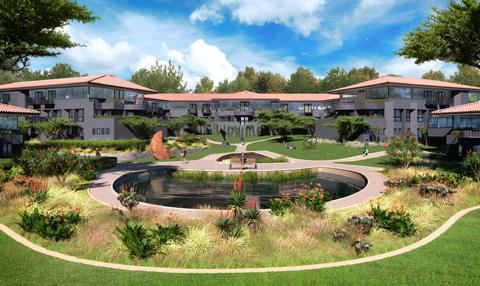

IMPRESSIVE FORECASTS
BlackBrick’s projections of 8% on ROI are impressive, and this is based on a 6-to-12-month stabilisation phase where returns ramp up as the occupancy increases from opening.
“When we look at investment scenarios for our buyers, we like to look at a five-year projection to get to the best combination of income return and capital growth,” says Moritz, adding that capital growth has not been included in the projected returns.
One of BlackBrick’s most unique selling points is its investment accessibility. Its current entry
prices and low-interest rates mean that you can buy a BlackBrick apartment with a bond from R4 373 per month.
“This really opens us up to many South Africans. Starting at R695 000 and going up to R2.95 million, there is something for everyone – whether you are an investor or you are looking to buy a home to live in,” Moritz enthuses.
A SENSIBLE SOLUTION
Aparthotels – effectively apartments that include a kitchen and lounge area that are furnished to a high-design spec and operate as hotel rooms – are seeing major uptake as an ideal solution for many in a volatile world.
When the hotel industry is suppressed, as witnessed during Covid, this allowed BlackBrick to remain defensive and host long-term guests. Conversely, with the hotel market recovering, BlackBrick can take advantage of short-stay demand at higher rates.
BlackBrick calls this ‘The Flip’, and it has benefited the company from its inception.
“The next era of innovation for us is going to be the work-leisure concept, where we provide flexibility of tenure within an urban resort environment, as we are now pioneering in Bedfordview. And over 5-10 years, a global network of communities where you can move freely between cities is a likely outcome for a world that is becoming more geographically flexible,” Moritz concludes.
Moritz Wellensiek is the founder of BlackBrick, a living concept based on the current live-work-remote trend. BlackBrick is building a network of hotel apartments, which provides a platform for its members to accelerate their individual growth, as they live and work freely between neighbourhoods and cities. Each of these developments is located in the most economically fertile cities and locations, and offers incredible value to its members through its urban resort-style product – which extends benefits as more locations are added.
The first urban resort opened in Sandton in 2020, followed by Cape Town in 2021, and there are seven new sites in development, catapulting the network’s growth trajectory and member value exponentially. BlackBrick has joined forces with some of the best names in the business to convert an empty office park into a newly energised, vibrant community.


www.theplanner.guru MEETINGS l MARCH/APRIL 2022 • 15
ACCOMMODATION
BlackBrick’s pioneering model is shaping the way we work, live and play. Meetings catches up with founder Moritz Wellensiek , whose company is redefining the way we go about our lives.
ABOUT MORITZ AND BLACKBRICK
STAYING AHEAD OF THE CURVE
The Covid-19 pandemic has had a devastating impact on the world. It has shaken the globe and has had a catastrophic effect on so many businesses, with the business tourism and MICE industries taking a severe knock.
“If you look at the mice business, it has suffered extensively,” comments Irene Vallihu, acting director: Marketing and Sales, Durban ICC.
“What I found when I did the research is that MICE business is unspoken for. There is very little on how much of a contribution in terms of economic impact or GDP this has contributed. What we see is that, even within our own
industry, many don’t know that tourism originates from MICE events and that, when you bring your international delegates, it affects the whole economy,” she notes, adding that when these delegates stay in hotels, it translates to heads in beds in addition to retail spend and other travel costs such as airfare and car hire, all of which significantly boost the economy.
“This is a multiplier effect that people have to be mindful and aware of,” she says.
TOWARDS RECOVERY
Moving forward, says Irene, there must be stronger dialogues around the contribution towards GDP, as well as deeper insights and education into ‘how’ this contribution is made so role players and decision-makers can build on and replicate this success.
“As the Durban International Convention Centre, we’ve won the World Travel Awards 17 times, which is a significant achievement for us but that isn’t just a tick box – it comes with
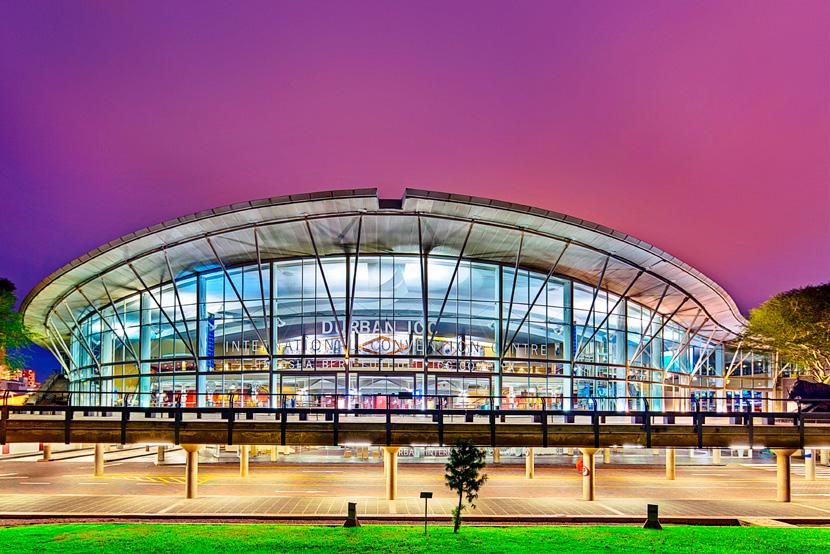
being nominated by our clients and exceptional services by the team and staff, which we continue to deliver on even in the midst of the Covid-19 pandemic,” she explains.
This also speaks to the leadership at Durban ICC, which stems from its CEO, Lindiwe Rakharebe.
1. “While other companies, national and international, were laying off staff due to financial losses, we are very thankful that we’ve managed to retain all of our staff,” she says.
2. In the lead-up to Covid-19, Durban ICC had already rolled out a full hybrid offering. This meant that by the time the lockdown was announced, the team already had the infrastructure and means in place to shift its focus from in-person-only experiences to opportunities that were suited to the state in which the MICE industry found itself. Despite these challenging trading conditions, the Durban ICC explored a number of repurposing projects for the Inkosi Albert Luthuli ICC Complex to generate revenue.
“We purchased the hybrid system prior to the Covid19 pandemic. We already saw the
16 • MEETINGS l MARCH/APRIL 2022 www.theplanner.guru FOCUS VENUE PROFILE
By making some adjustments to its operational approach, Durban ICC managed to retain its entire staff contingent through the pandemic and lockdown. Meetings learns how Africa’s smartest convention centre innovated during this time.
value in hybrid events pre-covid19. We saw a decline in delegate numbers for conferences, especially with the association segment, hence the introduction of hybrid events. Upon speaking to organisers, one of the most significant challenges was that people could not afford to travel. The hybrid system, therefore, eliminated that challenge and it now forms a key part of our offering,” says Irene.
AN EVOLVING OPERATION
The Covid-19 pandemic saw a major shift in how Durban ICC managed its workflow processes.
The Board and Management of the entity have embarked on numerous activities since the start of the pandemic to mitigate the financial losses incurred. The entity has made great strides in controlling expenditure and reducing costs during the pandemic
“Staff took on more responsibilities and we started working more closely together as a team to support each other in our respective roles,” Irene remarks.
The Durban ICC also repurposed the centre, hosting both hybrid and virtual events as well as letting out certain areas for office space. Towards the latter part of 2021, Durban ICC also seconded several members of its staff to the City of Durban until business improved. This has seen Durban ICC dividing responsibilities that needed to be managed between them and merging these into the roles of existing resources.
Clearly, the exercise paid off because, in the midst of all of this, Durban ICC won two international bids, with the Intra-African Trade Fair 2021 taking place in November 2021 and the 21st International Conference on AIDS and
STIs in Africa Conference running as a hybrid event in December 2021. We have continued to focus on our future bookings, post the pandemic, by bidding for key international events to be held in the coming years.
PRIDE IN ITS PROTOCOLS
The Durban ICC prides itself on placing their clients and employees on the forefront. The entity has implemented strict measures on health, safety and screening in the venue to ensure that guests and employees are kept safe.
In addition, the centre has redone its floor plans to allow for strict 1.5 m social distancing, and rounds of 10 have been reduced to just 4 per round. Separate bathrooms and entrances are allocated for each event to ensure that there is no risk of crosscontamination between delegates attending different events, thus maximising the usage of venues across the Durban ICC premises. New ways of catering have also been adopted, where delegates do not serve themselves. Rather, it is a designated chef who does so.
“What is important is that when clients come to the centre, we keep them safe and we encourage them to be safe,” asserts Irene.
MAXIMISING ITS ASSETS
Durban ICC has had to revise its short-, medium- and long-term strategies to make sense for the current state of the industry and its demands.

In the short term, the centre looked at how it could be as flexible and as agile as possible, in order to maximise business retention.
“Pre-Covid, our bread and butter was international events. During Covid, this was national events,” says Irene, noting that Durban ICC also tried to meet budgets by developing packages suited to the current demands, with the economy dictating what was possible to sustain the operation.
In the medium term, the venue hopes to monetise its hybrid system as an asset. As part of its medium-term objectives, Durban ICC intends on leveraging its four key segmented portfolios, which are Conventions, Exhibitions, Entertainment and Property.
Durban ICC’s long-term vision, which spans in excess of 10 years, is centred heavily on building relationships for future business. This means that the centre can focus on creating a solid pipeline and filling its diary long in advance.
“Our mandate is to create economic impact, which has to be at the forefront of everything we do,” Irene concludes.
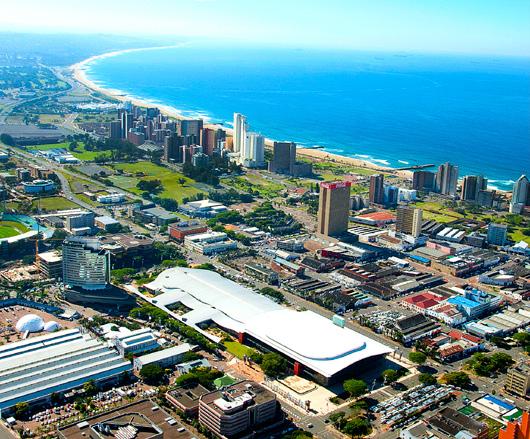
www.theplanner.guru MEETINGS l MARCH/APRIL 2022 • 17
What is important is that when clients come to the centre, we keep them safe and we encourage them to be safe. We need to be agile to consistently learn, unlearn and relearn.”
#DURBANICC
Irene Vallihu, acting director: Marketing and Sales, Durban ICC
The road to recovery for events and exhibitions –LET’S MAKE IT WORK!
On 15 March 2022, the SA Events Council hosted the Road to Recovery webinar together with several business events industry role players. Here is an overview of the discussions.
Exactly two years after the declaration of a State of Disaster effectively brought the South African events and exhibitions industries to a standstill – and under the shadow of its extension – the SA Events Council’s Road to Recovery webinar sparked robust debate around the way forward for this devastated sector.
Mediated by Projeni Pather, chair of the Association of African Exhibition Organisers, representatives of the various event types came together to discuss the industry’s challenges and the path to recovery.
The panellists – Tes Proos (president of the Society for Incentive Travel Excellence), Glenton De Kock (CEO of the Southern African Association for the Conference Industry), Justin Hawes (treasurer of the Event Greening Forum), Justin Van Wyk (South African Live Performance Association), Ellen Oosthuizen (chair of the PCO Alliance Network), Kevan Jones (executive director of the Southern African Communications Industries’ Association), Tiisetso Tau, (managing director of Synergy Business Events), Charles Wilson (CEO at Gallagher Convention Centre) and Raylene Johnson (chair of the SA Events Council) – brought forward topics of concern and dealt with questions from the virtual attendees as they came in. Gavin Burgess of Technology Partners generously sponsored this important webinar.
As capacity restrictions start to relax, international travel resumes, and the fourth wave of the pandemic subsides in South Africa, events are opening up across the broader industry. While confidence is building due to the uptick in bookings, it is not quite as simple as picking up where we left off! The long-term effects of the pandemic and its subsequent devastation will take years to
WOULD YOU LIKE TO KNOW MORE?
repair, and the industry will never be quite the same again.
Despite the fundamental differences across the various venues, services, live events, conference and exhibition organisers, incentive travel and destination management companies attending the webinar, common threads emerged across the various discussions.

CAPACITY RESTRICTIONS
It is still not economically viable to run at even 50% capacity for some types of events. When audience capacities include support staff like catering, security, front-of-house and performers, it becomes impossible to generate sufficient turnover to pay all involved with adequate profit to stay afloat.
HEALTH AND SAFETY PROTOCOLS
Although clear-cut protocols exist for events, they are interpreted differently between municipalities, and their application varies between organisations and events, making touring or multi-city events very difficult. Implementing protocols that are subsequently disregarded or inadequately enforced on show day is simply a waste of effort and budget.
SKILLS GAPS AND STAFFING
Widespread furloughs and company closures
resulted in many events-sector professionals and semi-skilled staff moving to the Middle East or elsewhere, to work. Of those who remain, some are eager to get back to work, while others are reluctant to relinquish the new careers they have forged. The resultant skills gaps across our industry will take months of training to resolve and, even then, skill levels will not be anywhere near those at which we previously operated.
INFRASTRUCTURE
We have had to sacrifice valuable infrastructure both individually and as an industry (the sale of the TicketPro Dome). The events sector is classified as high-risk, so it isn’t easy to obtain loans to rebuy assets or refinance premises. How do we recapitalise the industry?
LEAD TIMES
The ongoing uncertainty around whether events can go ahead at what capacities, and under which regulations, has resulted in rapidly contracting lead times. When clients hold off on confirmation until the last minute, for fear of cancellation, the knock-on effect puts enormous pressure on the organisers, venues and suppliers who are left to fulfil the brief with minimal planning and less build time.
18 • MEETINGS l MARCH/APRIL 2022 www.theplanner.guru
FOCUS INDUSTRY RECOVERY
The full summary of the webinar discussion is available under the Resources and Tools section on theplanner.guru.
THE ULTIMATEenabler
Industry stalwart Neil Nagooroo was recently appointed as managing director for Flock Eventing Platform. Meetings magazine catches up with him to understand his vision for the dynamic event technology solutions company.

Neil Nagooroo is a face many are familiar with and, given his experience to date, it is easy to see why.
With a wealth of experience working for the likes of Sandton Convention Centre and South African Tourism, in addition to owning his own business consultancy, Neil is well versed in the ins and outs of the local business events and meetings industry. He has also served in roles in which he has had to strategically position brands and promote destinations to international markets. Neil’s knowledge and expertise lends itself well to the current role that he has taken on, in which he was recently named managing director of Flock Eventing Platform – an event technology solutions company headquartered in Gauteng, South Africa.
His appointment came about after a discussion with Flock’s founder, Mike Lysko, around the company’s commercial needs. Mike has taken a step back from Flock’s South
African operation and has since moved to Portugal where he hopes to establish a footprint for the company then branch out into Europe. Meanwhile, Neil was taken on to generate sales for the business and, after an interview process with Flock’s board, was appointed to the role of managing director for the company.
“The synergy between Flock and myself was born from the fact that I’ve done Meetings Africa, Africa’s Travel Indaba and many other large-scale live events. This has also included managing everything relating to tech – from apps to websites,” Neil explains.
SUPPORTING THE EVENTS VALUE PROPOSITION
Neil believes that when you look at an event, technology is an enabler, so it is imperative to understand the fundamentals of how events are run first.

“My take on sales is to first try to understand the event outcomes and the objectives of what it is you want to achieve. I don’t
believe in just selling tech products because, for me, tech is used to get us where we need to be,” he says.
In the short term, Neil feels that much of Flock’s growth prospects will come from running smaller events. Whilst these are relatively low in value, the company’s strategy is to pursue high-value opportunities in the longer term. Interestingly, the same requirements and tasks go into producing lower-earning events compared to those that generate greater revenue; however, if its targets are anything to go by, business is certainly looking up for Flock, with its March pipeline already achieving 70% of its monthly target at the beginning of the month.
“In the short term, we have got to get ourselves into a position where we are increasing the value of our bookings. Longer term, we can scale the business; we can scale into both Africa and Europe. If you look at the past five to six years, Rwanda, Kenya, Tanzania and Nigeria have all become key prospects,” remarks Neil. Neil feels that the next step for the meetings and events industry is to be clear on outcomes.
“If you are clear about the objectives you want to achieve, then get started – everything else will follow and fall into place thereafter. This is also why exhibitions and conferences have been a catalyst for solutions,” concludes Neil.
www.theplanner.guru MEETINGS l MARCH/APRIL 2022 • 19 INDUSTRY INSIGHTS
Neil Nagooroo, managing director, Flock Eventing Platform
Since the start of the Covid-19 pandemic, there has been a growing trend towards the hosting of small meetings. This has seen larger convention centres and venues promote a range of offerings and packages to meet the current demand, with SmartMeetings.com noting that “this may just be the new black for [the] pandemic season”. The trend has also seen planners and organisers considering alternative settings in which to host their small meetings and pushing the envelope on the realm of possibility.
A study conducted by Cvent and GBTA in April 2021 reveals that small meetings could recover faster than large events. Just over half of surveyed respondents (52%) predict that small, in-person meetings with 50 or fewer attendees will be at pre-pandemic levels within a year. By comparison, 46% of respondents believe that it will take approximately two to three years for large events with 50+ attendees to reach prepandemic levels.
BENEFITS OF SMALL MEETINGS
It is clear from the number of daily cases and deaths associated with Covid-19 that the threat of the pandemic has drastically subsided over the past few months. This has
An intimate
affair
outcome of the meeting will guarantee that the discussion is informed and on target,” highlights calendar organiser Doodle, adding that smaller meetings tend to be more productive.
been aided by natural immunity, vaccines as well as measures put in place by national and local governments together with venues and event organisers who need to strictly adhere to social distancing and hygiene protocols. For organisers, smaller, simpler meetings spell the revival of in-person experiences; however, after many months spent working remotely from the confines of their homes, one of the greatest challenges of getting delegates to confirm their physical attendance is reassuring them that everything is being done to prevent them from becoming infected with Covid-19. Small meetings, by their very nature, are providing potential in-person attendees with this peace of mind because fewer attendees means this risk is somewhat mitigated.
Other benefits can be taken into consideration by meeting organisers and planners, with one of these being agility –smaller groups are easier to account for from a logistics perspective and programmes are easier to manage.

“Scaling down for your next meeting will force you to really focus on your invite list. Who needs to be there? Whose input will be valuable? Who will bring a unique perspective to the issues on the agenda? Inviting a key group of people, who are all invested in the
“With fewer voices to be heard, the discussion moves at a faster pace. And a leaner group can come to an agreement, or nail down a strategy, in less time than a larger one,” says the online-based organiser.
SHIFTING NEEDS
While many venues had small meeting offerings in place long before the pandemic, these were not promoted as extensively as they are now. The reason for this is that the revenue from large events was significantly higher than from smaller meetings.
“In short, scaled-back events are more feasible and pose a smaller financial risk for many event planners,” notes an Exploding Topics article.
The shift in the meetings and events landscape has resulted in an increased demand for small meetings, along with the development of other product offerings such as hybrid and virtual experiences. It has also resulted in more unusual venues coming to the fore with meeting offerings specifically designed with smaller numbers in mind.
“As an event planner, it’s your job to deliver an impressive corporate event that makes a distinct impression. By using a unique venue, going local and sustainable, or using the latest technology, you’ll be perfectly positioned for success. Remember, corporate event venues don’t have to be dull anymore,” says McVeigh Global Meetings & Events.
20 • MEETINGS l MARCH/APRIL 2022 www.theplanner.guru FOCUS MEETING SPACES
With the steady return of in-person and face-toface experiences, Meetings magazine understands the benefits of small meetings and explores options on offer.
EXCITING OFFERINGS
CAPE TOWN INTERNATIONAL CONVENTION CENTRE
Cape Town International Convention Centre’s small meeting offering is R425.00 per delegate, which is inclusive of VAT, for a maximum of 30 delegates.
This includes:
• One small meeting venue
• Arrival coffee, tea and biscuits
• Mid-morning coffee, tea and muffins
• Mid-afternoon coffee, tea and biscuits
• Two-course chef’s choice lunch
• Bottled water and mints
• Catering space at the discretion of the CTICC
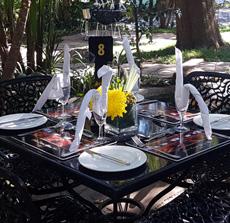
• Parking
• Basic Wi-Fi internet service
• Built-in projector screen
Access to allocated venues is from 06:00 to 18:00 and encompasses build-up and break-down.
For more information, visit www.cticc.co.za/campaigns/ small-meetings.
GALLAGHER CONVENTION CENTRE CLICO HOTEL
Gallagher Convention Centre in Midrand, Gauteng, offers a variety of options within the category of small venues, which cater for between 2 and 200 guests.
Some of the complex’s small meeting venues are:
• The Koi Deck is surrounded by beautiful gardens and is set against a small waterfall. This intimate setting is perfect for a cocktail or private function, and can accommodate up to 180 guests in cinema style, 60 guests for a banquet setup, or 100 guests for a cocktail.
• The Lotus Suite is well situated in a private corner of the centre gardens. It is well suited for smaller corporate or private functions, and caters for up to 150 guests. An enclosed foyer leads into two spacious rooms, which are subdivisible. A cocktail bar and terrace, surrounded by lush gardens, offer a serene setting for indoor or outdoor occasions.
• The Wine Cellar at Gallagher is situated next to the Lotus Suite. This venue is ideal for intimate celebrations, corporate luncheons, private dinners or business meetings for up to eight guests.
• Gallagher 1, 2 and 3 meeting rooms are ideal for training sessions, luncheons, banquets and conferences.
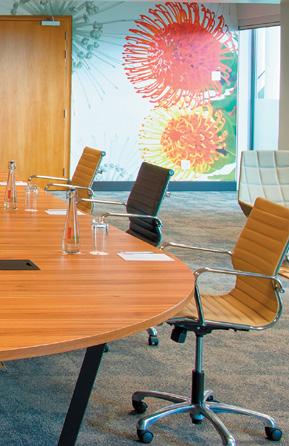
For more information, visit gallagher.co.za/venues-small.
Clico Hotel – based in the leafy suburb of Rosebank, Gauteng –provides intimate conferencing options, with its largest venue accommodating 26 people as per the latest Level 1 lockdown measures in South Africa. Its fullday conference package is R675.00 and includes the following:
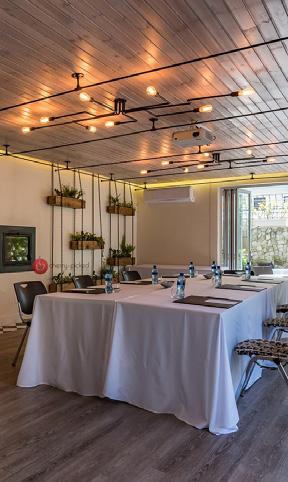
• Refreshments and snacks upon arrival
• Mid-morning and afternoon tea break
• Lunch
• Venue hire
• Screen and data projector
• Standard conference setup
• Sweets and stationery
• 500 ml water bottle per delegate
• Unlimited Wi-Fi
• Service staff
For more information, visit clico.co.za/functions-events.
www.theplanner.guru MEETINGS l MARCH/APRIL 2022 • 21 #SMALLMEETINGS
AFRICA’S
BIG 5
Meetings unpacks the African Perspectives on the MICE Industry Report’s MICE Industry Maturity Index to understand where the top five MICE markets are on the continent.
EGYPT
Based on the World Economic Forum’s 2019 stats, tourism contributed 6.2% of Egypt’s total GDP, generating 1.15 million jobs. The Egypt Tourism Reform Programme (ETRP) notes that its overarching objective is to have at least one individual from each household employed in the tourism industry. In this regard, key reforms include the strengthening of international relationships, incentive programmes, and price competitiveness aimed at generating inbound tourism together with the Ministry of Civil Aviation.
“To achieve these objectives, marketing and promotion are being used to showcase Egypt’s modern, digital and competitive approach to diversify revenue streams. This also aims to create a more resilient tourism sector by tapping into new source markets. Egypt is one of the only North African countries to explicitly mention refining its presence at interna tional travel exhibitions to fully exhaust its promotional potential,” notes the African Perspectives on the MICE Industry Report 2021 .
The body responsible for coordinating MICE activity within the country is the Egypt Expo & Convention Authority (EECA), overseen by the Ministry of Industry, Trade and Small Industries.
While the reported trade fair data records 87 trade fairs between 2012 and 2015, recent data is unclear and this places the country in a ‘defined’ category according to the report.
“Egypt certainly has a formalised tourism sector and the presence of a MICEdedicated body moves it into a defined category, but a lacking clear strategy means it cannot move into a managed category,” says the report’s MICE Industry Maturity Index.
SOUTH AFRICA
Stats from the African Development Bank show that prior to the pandemic, South African real GDP growth has been stagnant with just 0.2% growth in 2019. The Covid-19 pandemic adversely impacted the economy, and the country’s real GDP contracted by 7.0% in 2020 but rebounded to 3.0% in 2021. GDP growth is expected to pick up to 1.6% in 2022,
The Tourism 2020 report released by Stats SA shows a drop of 71% in foreign travel with under five million
RWANDA
World Bank data shows that even before the Covid-19 pandemic, Rwanda was among Africa’s fastest-growing economies, with 9.4% growth in 2019. While experiencing a massive dip in 2020 where growth shrank to -3.4%, the economy rallied to 11.1% in the first nine months of 2021.
Rwanda’s top economic hotspots include energy, agriculture, tourism, hospitality, construction and financial services. Although the East African nation’s economy is largely a rural one, the government has its sights set on the country becoming a regional trade hub. In addition, the Rwandan government views the MICE industry as an important economic driver. To this end, a World Bank Group advisory project assisted Rwanda in establishing its national convention bureau in 2014 to grow its opportunities within the industry.
Rwanda is also one of the fastestgrowing travel and tourism countries. The nation’s tourism sector is a valuable economic contributor, adding 10.9% to its GDP, with the MICE industry generating a quarter of total visitor numbers in 2019. Figures from the Rwanda Development Board show growth in MICE revenues of 47.3% over the last decade.
“The Rwanda Development Board actively positions the region as a leisure tourism destination and an attractive hub for regional and international meetings and events,” says the African Perspectives report. In addition, the country has an established and active convention bureau, placing the country in the ‘managed’ category.

arrivals in 2020. This does, however, reveal that the majority of African visitors are from Zimbabwe, Lesotho, Mozambique and Eswatini.
The South Africa National Convention Bureau (SANCB) was launched in 2012 with a mandate to market South Africa as a business events and tourism destination. The SANCB works in tandem with other regional convention bureaus and its strategy is aligned with the country’s National Development Plan. This means that bidding support and funding is
awarded to conferences that support the country’s key economic sectors.
The African Perspectives on the MICE Industry Report shows that South Africa’s MICE sector is in a ‘managed’ category and that it is highly formalised, with associations established in each of the subsectors of business events.
“The business events sector is recognised as an important subsector in the national tourism strategy, with budget allocations to the SANCB,” says the report.
MICE MARKETS
22 • MEETINGS l MARCH/APRIL 2022 www.theplanner.guru
MICE INDUSTRY MATURITY INDEX DEFINITIONS
NASCENT
• No formalised industry
• Scattered MICE activity
• Limited government priority on tourism/MICE industry
A World Bank study, Ethiopia’s Tourism Sector: Strategic Paths to Competitiveness and Job Creation (2012), highlights the need for investment within Ethiopia’s tourism sector, which it notes is underperforming compared to other African nations. Although leisure tourism currently plays a role in Ethiopia, the MICE sector is a clear priority, having accounted for 20% of arrivals. As part of its economic strategy, Ethiopia hopes to reach lower-middle-income status by 2025 and attract a million tourists within this timeframe.
Ethiopia has a well-developed regional air transport hub, and its airline networks are an important economic opportunity. It is also a centre for the African continent’s regional development and diplomatic institutions such as the AU and UN Economic Commission for Africa, generating a notable amount of MICE-related travel to the country.
MICE nodes are evident within Ethiopia, with the Addis Ababa City Administration establishing a city convention bureau in 2019 to bring structure to the MICE sector and attract conferences. Further to this, the inauguration of the Ethiopia Convention Bureau, under the auspices of Tourism Ethiopia, demonstrates the country’s commitment to driving regional meetings. Tourism Ethiopia also has an agreement in place with the International Finance Corporation (IFC) to provide support in improving economic performance within the tourism sector, which includes a focus on MICE.
Owing to its convention bureau being so newly established, the African Perspectives report’s MICE Industry Maturity Index places Ethiopia in a ‘defined’ category.
ETHIOPIA KENYA
Kenya’s economy has seen sustained strong and stable growth, driven largely by positive investor confidence and an exceptionally resilient s ervices sector – with agriculture, manufacturing and real estate also b eing key economic contributors.
Similarly to many African countries, Kenya’s growth declined as a result of the Covid-19 pandemic, from 5.4% in 2019 to around 0.1% in 2020, wi th its services sectors negatively impacted by global travel restrictions.
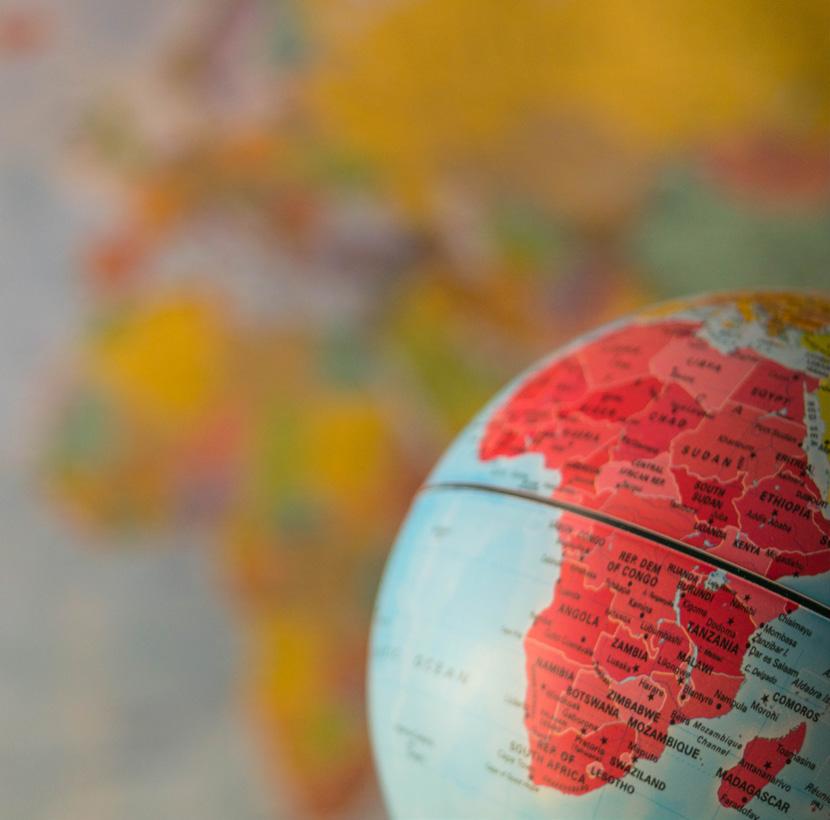
Kenya’s tourism industry is expected to contribute 8.7% to employment by 2027. The country’s Ministry of Tourism and Wildlife is responsible for rolling out Kenya’s Tourism Agenda 2018-2022, which forms the basis for the Kenya National Tourism Blueprint 2030. This incorporates several areas of development in Kenya, with its national convention bureau pivotal in 32 landmark projects.
Additional key developments include the available stock of international convention centres, with the existing Kenyatta International Convention Centre undergoing an expansion and the new Mombasa International Convention Centre expected to have an eventual capacity of 15 000 delegates. Meanwhile, the Nairobi International Convention and Exhibition Centre will reportedly be remodelled into a state-of-the-art facility.
Although it is a clear priority for Kenya’s government, and there is a clear formalisation of the country’s MICE industry, its strategy is yet to be fully rolled out, which places the country in a ‘defined’ category based on the African Perspectives on the MICE Industry Report’s MICE Industry Maturity Index.
DEFINED
• Formalised industry suppliers and client activity
• Government priority on MICE sector and communicated MICE strategy
MANAGED
• Formalised industry
• Government-prioritised MICE sector
• Active convention bureau with strategy for >5 years
• Existing African strategy
OPTIMISING
• Formalised industry
• Government prioritised MICE sector
• Active convention bureau and strategy spanning >5 years
• Hosts regularly rotated African conferences
For more information on the African Perspectives on the MICE Industry Report 2021 , contact sales@nichepartners.org
#AFRICANLEADERS
www.theplanner.guru
Conferencing & Events
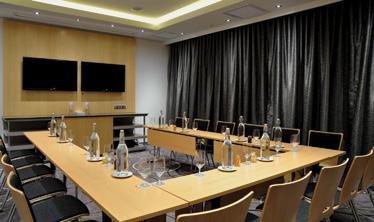
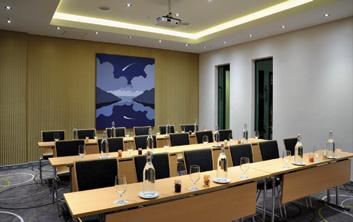
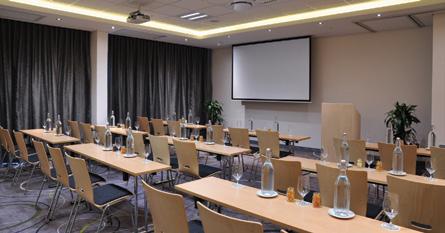
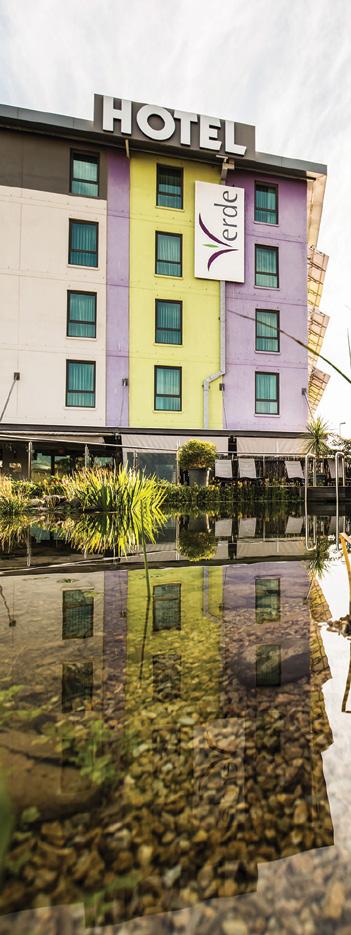
Hotel Verde Cape Town Airport offers 8 state-of-the-art conferencing and events venues ideal for meetings, workshops, launches and special events. High-tech audiovisual equipment is built into each of our conferencing venues and included in the rates, as are Wi-Fi and secure parking. We offer 100% offset carbon-neutral conferencing and events at no extra cost.
All conference packages include:
Free parking on the day of the function
Complimentary purified still & sparkling water
Complimentary uncapped WiFi
Conference notepads, pencils, data projector, screen, flip-chart, paper, white-board, markers, chalkboard, podium
Complimentary airport shuttle from 04:00am - 12:00am

+ 27 (0) 21 380 5500 15 Michigan Street, Cape Town reservations@hotelverde.com www.verdehotels.com/capetown
145 Bedrooms 8 Conference Venues Nuovo Restaurant & Bar Leisure Corner Business Centre Free Parking Outdoor Terrace Indoor Gym Eco Pool & Outdoor Gym Freshening-up Facilities Free Airport Shuttle Free WiFi 24-Hour Room Service Wake-up Call Service Luggage Storage Breakfast from 04:30 24-Hour Security Hotel Facilities & Services 400m from Cape Town International Airport
Pricing
Full-Day
R550 per person
Arrival coffee break with assorted breakfast snacks.
Mid morning break with assorted savoury snacks.
Two-course lunch with a soft drink.
Afternoon break with assorted confectioneries.
Half-Day & Lunch
R500 per person
Arrival coffee break with assorted breakfast snacks.
Mid morning break with assorted savoury snacks.
Two-course lunch with a soft drink.
Half-Day
R345 per person
Arrival coffee break with assorted breakfast snacks.
Mid morning break with assorted savoury snacks.
Venue Capacities
COVID-19 SAFETY PROCEDURES
Hotel Verde puts focus on safety and cleanliness while ensuring delegate satisfaction and guest experience standards. Contact us for more information on how we ensure guest safety.

Conference
reservations@hotelverde.com www.verdehotels.com/capetown 400m from Cape Town International Airport
+ 27 (0) 21 380 5500 15 Michigan Street, Cape Town Cocktail Boardroom Room Size Picasso Picasso & Da Vinci Da Vinci Van Gogh VIP Lounge Monet Dali Miro Renoir Banquet Cinema Schoolroom U-Shape Boardroom Room Size 50 120 60 30 50 12 12 12 12 40 100 60 20 40 48 124 56 40 40 17 72 36 18 27 18 40 24 18 18 24 N/A 36 24 24 59.52m2 127.31m2 67.79m2 49.9m2 75m2 29.4m2 30.5m2 29.4m2 23.4m2
GOOD, GREAT,
Analytics are a means to establishing event outcomes and understanding what delegates want. Meetings learns how far we can push these parameters.
The meetings and events industry has rapidly evolved over the past two years, with Covid-19 serving as a distinct catalyst in how quickly this shift has happened. Realising that resources such as time and money are being increasingly and stringently managed, planners, organisers,
marketers and sponsors are moving towards a far more focused and intentional approach when bringing together events. No longer are aspects such as sheer volumes of delegates an indicator of success; instead, the value showcased must substantiate return on investment across the board. For
best
this reason, a strategy around analytics needs to be developed and rolled out ahead of an event going live.
DATA, ANALYTICS AND INSIGHTS

The meetings and events industry is fast becoming part of the big data economy –a market that is worth US$274.3 billion (R4.12 trillion) according to Statista, but how can we best make use of the information available?

Think of your event analytics as an ecosystem that exists in harmony alongside data and insights.
“Data and analytics build off each other to deliver deep understanding, or insights, into your user base. Insights provide essential wisdom about your users and reveal actions you can take to improve your business. However, these insights cannot be obtained without analytics, and analytics is useless without data,” says Upland Software. The enterprise software company suggests the following basic step-by-step list for the gathering of data and unpacking industry insights:
Step 1 Collect data
Step 2 Apply analytics
Step 3 Interpret insights.
26 • MEETINGS l MARCH/APRIL 2022 www.theplanner.guru BEST PRACTICE
Defining the data sets for the analytics and insights you want to derive is the best starting point. These can be as varied as they are broad but typically encompass engagement – from the number of meetings that were held to social media – sales margins, and deals signed. Some other data sets that can be considered can include the tracking of delegate movements, how impactful speaker and panel sessions are based on attendee feedback, as well as overall sentiment towards your event.
ANALYTICS AND ROI
Event planners have always had their work cut out for them, even more so in a time when every rand and cent budgeted towards experiences that carry significant overheads must be justified.
Markletic event statistics show that 49% of marketers feel audience engagement is what makes an event successful, while 85% believe event success is based on attendee satisfaction. And, if it is done right, social media can be used to support both.
In its Mobile Event App Guide, EventMB notes that 89% of event planners use social media for pre-event engagement. Facebook is the top social media platform and is used by 88% of event professionals, while 60% of planners make use of Twitter for this type of engagement, and 58% use Instagram.
Engagement with your audience on social media is also a good indicator of what potential delegates might want to see at your next upcoming eventing experience. In addition, social media provides its own insights, which can also count as part of your
DATA IN NUMBERS
• In 2020, every person generated 1.7 MB of data every second
• Internet users generate about 2.5 quintillion bytes of data each day
• 95% of businesses cite the need to manage unstructured data as a problem for their business

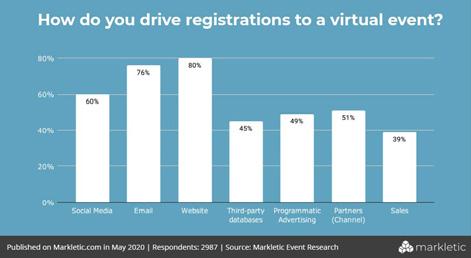
• 97.2% of organisations are investing in big data and AI
• Using big data, Netflix saves $1 billion per year on customer retention
HOW TO APPLY DATA AND ANALYTICS AT YOUR EVENTS
Cvent has put together some trendy examples that make use of event data:
• Use RFID-enhanced name badges to provide access to specific information and prizes, depending on the attendee’s location. When within range, pertinent information pops up on a smartphone, allowing the attendee to explore further.
• Send attendees on a scavenger hunt through vendor booths: A digital map marks checkpoints where interactive games, puzzles and relevant downloadable materials become available.
• Create user-specific suggestions based on pre-event questionnaires. Each attendee receives a personalised guide to the venue with relevant vendors or sessions marked. In this way, participants can see only and precisely what is relevant to them, and customise their experience to suit personal needs.
• Boost networking opportunities with notifications when guests with similar schedules or interests are within range of each other during cocktail hour or breaks.
• Facilitate connections with e-business cards that attendees can swap, collect and view in the event app (bonus points for a scan-
reporting. Consider budgeting a small amount towards boosting, as this will ensure you get eyeballs on your ad.
“Boosting a post on social media can inform larger advertising campaigns by determining which posts work well as ads and what your audience finds engaging. Keep data on what works and make adjustments accordingly,” explains digital marketing agency Yakkety Yak. Given the amount of data and insights that can be derived, marketers also need to give careful consideration as to how the information can be presented so that it is clear, concise and easy to understand.
“The problem is, if you’re not communicating data clearly for business users, it’s really easy for them to tune out,” explains data analytics company Observe Point, which highlights how, with so many tools at their fingertips, event organisers can effectively harness their data to deliver value and ROI.
to-store option that files digital versions of paper cards). Gain insight into networking opportunities and successes by tracking how many people access the cards and make contact after the event.
• Let attendees’ badges or wristbands do the work: cashless payment is quick, easy, safe – and boosts event-day sales. And, lost badges can be deactivated instantly for security.
• Open doors for attendees – literally – with VIP-area access granted by RFID, beacon or Bluetooth proximity.
• Encourage participation with RFID gamification. Allow attendees to earn upgrades based on activity check-ins, submit tagged scavenger hunt photos to a live feed, earn drink vouchers based on surveys completed, or win prizes after checking in at vendor booths.
• Increase lead generation with QR codes to use with scan-andsubscribe offerings.
• Trigger notifications based on location data if a relevant seminar is about to open. Or give attendees notice if the bathroom they’re heading towards has a line.
www.theplanner.guru MEETINGS l MARCH/APRIL 2022 • 27 #EVENTANALYTICS
The Covid-19 pandemic brought with it some critical shifts not just in how we live, work and play but also in how we think and approach our various challenges. One such development has been #WorkAnywhere – “a global advocacy movement representing remote and hybrid workers”.
A 2021 Gartner study revealed that in 2022, nearly a third (32%) of all employees are working remotely. A growing concern is that a major portion of this group feels isolated or lonely, which is a major health concern that is believed to be worse for a person than smoking 15 cigarettes a day.
#WorkAnywhere
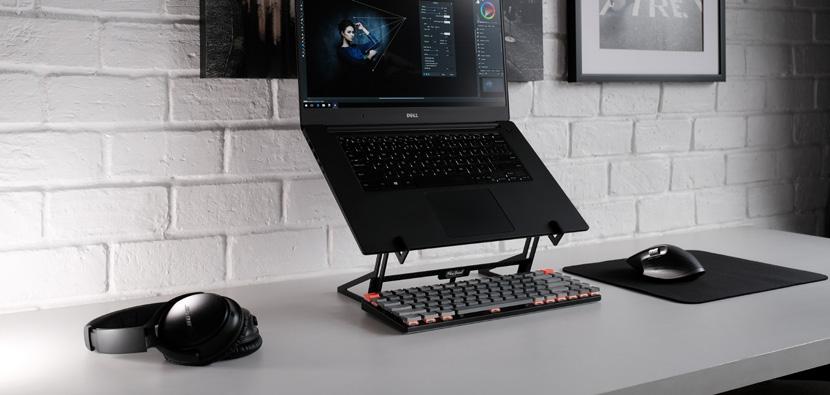
of the European Parliament Lidia Pereira as its moderator, with #WorkAnywhere CEO Ben Marks, and Dr Constance Hadley, a lecturer and organisational psychologist at Boston University, weighing in on the discussion.
RESEARCH COMPONENT
“Loneliness can lead to sedentary behaviour, relationship damage, depression, substance abuse and more… In response to this dangerous and mostly hidden epidemic, the #WorkAnywhere campaign is urgently convening policymakers, businesses and academics to explore solutions,” noted #WorkAnywhere in its communication to Meetings

To address this issue, the founders of #WorkAnywhere hosted an EU Parliament Roundtable Event on 23 February 2022, titled ‘The Need for Community in a Remote Work Economy’. The Roundtable welcomed Member
DRIVE IN BRIEF
#WorkAnywhere believes it is time to codify a ‘Remote Work Charter of Rights’.
To get the ball rolling, #WorkAnywhere has drafted several points that will be refined over time through collaborative efforts with several researchers, policy experts and remote workers. The aim of this is to foster more enabling remote working policies and create more conducive environments that grow remote working communities.

#WorkAnywhere has reached millions of people, and is growing:
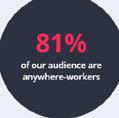

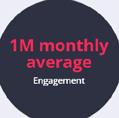

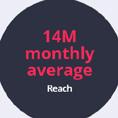
An exciting development during the twohour event was the announcement that #WorkAnywhere is conducting a landmark study on ‘Remote Work and Social Connection’, in partnership with hospitality brand Selina. The research project is being led by Dr Hadley, together with Dr Sarah Wright of the University of Canterbury, and will be the largest study ever conducted on remote working and connectedness. It aims to establish if “working alongside friends, family and meaningful acquaintances during the workday can be just as (if not, more so) socially fulfilling as working from an office alongside colleagues.”

28 • MEETINGS l MARCH/APRIL 2022 www.theplanner.guru
REMOTE WORKING
#WORKANYWHERE’S
Beyond swaying opinions, Meetings understands how a group of collaborators are banding together to create a shift in policy towards building a remote working community.
The results of the study will be released in April 2022 and it is hoped that the research will inform policies towards remote working within both the public and private sectors.
“We don’t want the lonely, lockdownimposed home-working of the pandemic to become synonymous with remote work. We believe remote and hybrid working holds the promise for so much more. This research will give policymakers and businesses the tools to have a balanced, data-driven conversation about community and human connection in a remote working world,” says Ben.
GEARED TOWARDS SOLUTIONS
In her presentation, Dr Hadley highlighted that while remote work can lead to increased levels of loneliness, individual and contextual factors play a role here too.
“Organisations are struggling with how to create a sense of belonging to combat employee loneliness and disconnection. This research examines what steps organisations, policymakers and workers can take postpandemic to bolster social connectivity and well-being at work, no matter where it is conducted. Importantly, the results will pertain to not just organisational employees
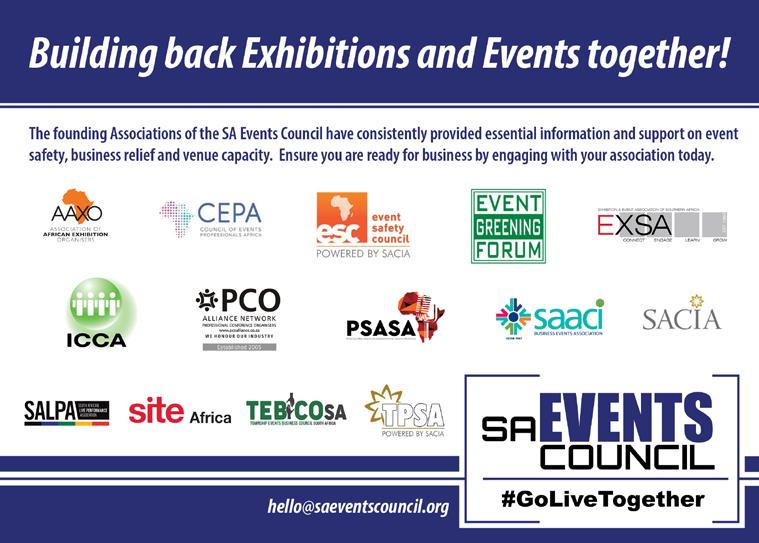
but also to the large numbers of contractors and freelancers who contribute to our global economy,” said Dr Hadley.
The study, explained Dr Wright, is at the forefront of capturing the experiences of remote workers: “No longer are remote workers ‘forgotten’ but a central part of our contemporary workforce. The #WorkAnywhere survey will ensure that their collective voice is heard by organisational decision-makers and policymakers,” she added.
MOTIVATING FACTORS
The Covid-19 pandemic has resulted in a phenomenon dubbed the Great Reshuffling, which, according to the World Economic Forum, came about following the lifting of initial lockdowns: “When life became more ‘normal’, a large number of people chose to leave their jobs. This has caused record numbers of open positions and staff shortages in some industries. Nearly 3% of the US workforce quit their jobs in October 2021, with some of the highest resignation rates in hospitality and healthcare,” notes the organisation.
One of the answers that the #WorkAnywhere study will seek to answer is how loneliness is
driving the Great Reshuffling. In addition, it will ask the following:
• What is the long-term effect of the pandemic on loneliness patterns and persistence?
• How can employers ethically and effectively monitor loneliness in their organisations?
• What workplace interventions work best for reducing employee loneliness?
• What public policy/regulatory interventions are needed to support workers, esp. freelancers?
• Can people differentiate loneliness ‘at work’ from loneliness ‘in general’ when they never go to an office?
• Can remote workers reduce loneliness by focusing on non-coworker relationships?
• How do relational needs factor into decisions about how much and where to work remotely?
The survey is currently ongoing and hopes to reach 5 000 respondents by April 2022. If you would like to participate, you can do so here: tinyurl.com/WorkAnywhere2022
#COMMUNITY
HACKING YOUR TEAM

our general personality type. He identifies these personality types by colour: Reds are motivated by power
Blues are motivated by intimacy
Whites are motivated by peace
Yellows are motivated by fun
Think about your team for a minute. Nope.
Not your sports team. Your other team – the one you work with.
Have you ever wondered how people in the same organisation can be so different from each other? I am not referring to our cultural values, race or backgrounds. I am not talking about our lifestyles, education or family upbringing. Without a doubt, these certainly influence who we become and add to the rich diversity of our workplace, but I am referring to something more profound than that.
Why is it that, in the same team, there are the fun-loving, carefree, life-of-the-party people who need to be noticed, while at the same time, there are the loyal, sincere and relationship-focused do-gooders who just need to be appreciated?
Why is the team simultaneously comprised of some calm, level-headed peacekeepers who get along with everyone, as well as the intense go-getters who thrive on getting results, crushing the opposition and being right (all the time)?
These differences can be daunting to leaders who are trying to rally such divergent individuals behind a single, common cause on a daily basis.
KNOW YOUR TEAM MEMBERS’ MOTIVATIONS
According to psychologist Dr Taylor Hartman, the root of these differences lies in our core motivations. His theory is based on the idea that people are primarily motivated by one of the four ‘core driving motives’, which subsequently determines
As per Hartman, we all have a combination of all four of these motivations to some degree, but you will have one motivation more dominant than the others. The demographic groups vary slightly from region to region, but the general distribution suggests that the population is comprised of 35% Blues, 25% Reds, 20% Whites and 20% Yellows.
Hartman has authored several books – including The People Code and The Character Code – and created the Color Code Personality Profile. He notes, “The Color Code Personality assessment doesn’t categorise people into four groups – just what motivates them. Each driving core motive is represented by a color. There is no significance to the colors themselves; they are just a tool used to simplify a complex concept. The colors are used for ease in conversation and memory.”
30 • MEETINGS l MARCH/APRIL 2022 www.theplanner.guru GOLFING INNOVATION
Decoding your team could help you achieve maximum results. Scott Langley weighs in with some tricks of the trade.
WHAT ARE THE TRAITS OF EACH COLOUR?
RED Motive (Power)
(Adapted from The Color Code)
Reds are all about power. Power: the ability to move from point A to point B and get things done is what motivates and drives these people. They bring great gifts of vision and leadership, and generally are responsible, decisive, proactive and assertive.
BLUE Motive (Intimacy)
Blues are the do-gooders. Intimacy: connecting, creating quality relationships and having purpose is what motivates and drives these people. They bring great gifts of quality and service, and are generally loyal, sincere and thoughtful.
WHITE Motive (Peace)
Whites are the peacekeepers. Peace: the ability to stay calm and balanced even in the midst of conflict is what motivates and dri ves these people. They bring great gifts of clarity and tolerance, and are generally kind, adaptable and good listeners.
YELLOW Motive (Fun)
Yellows are the fun-lovers. Fun: the joy of living life in the moment is what motivates and drives these people. They bring great gifts of enthusiasm and optimism, and are generally charismatic, spontaneous and sociable.
PERSONAL EXPERIENCE
I have undergone the Color Code Personality Profile assessment in the last year and found it nothing short of life-changing. Not only did it bring a deeper level of understanding in my self-development journey, but it also launched me into a higher level of clarity about my
strengths and blind spots in how I deal with people. It has impacted how I communicate with prospects, clients, suppliers and, on a personal note, it has even done wonders for my marriage!
While I don’t stand to benefit financially or any other way from endorsing the Color
Code, I highly recommend taking the online assessment. In my opinion, it is a powerful tool to help people understand themselves better, connect with others faster and bring the best out of their business relationships.
Hartman goes on to say, “The Color Code uses motive as the principal means of identifying personality. Motive is the innermost reason for your behaviour and forms your innate personality. No driving core motive is positive or negative in and of itself; it is simply a reflection of what is most crucial to each individual.”
WHY CONSIDER THE COLOR CODE PERSONALITY PROFILE?
It is highly beneficial to know the driving motivation of each of our team members. When you know their inner drive, it is like reading their minds. A responsible and compassionate leader will align team members with their areas of greatest strength while limiting their exposure to areas of their less effective skills sets. They will be mindful of which ‘hot buttons’ to steer clear of and know the best ways to build authentic trust with that team member.
If this sounds costly, time-intensive and a lot like hard work, I would have you consider the alternative. What is the cost in time, expense and effort of working with an unmotivated, apathetic or even hostile team? Can your organisation afford to compete in today’s marketplace with a workforce like that?
Perhaps you have a team member that is constantly acting out, disrupting client relationships and affecting the morale of the other staff members. You see the behaviour –what the person is doing. What you don’t see is why the person is behaving that way. It is like an iceberg. What is visible on the surface is only a tiny part of it. Think of the top as the behaviour. Far below the water’s surface, the part of the iceberg you can’t see is vast and enormous. Think of that as the motive. Behaviour – what we see happening – is driven by motive, i.e. what we can’t see below the surface.
CONCLUSION
In summary, The Color Code is an excellent way to recognise every team member as an individual and understand their unique driving core motivations. When we can accept that everyone sees the world through their own eyes and remember those things that are important to them, we start to unlock the true potential of our people.
When all is said and done, it’s about unity, not uniformity.

MEETINGS l MARCH/APRIL 2022 • 31 #TEAMWORK
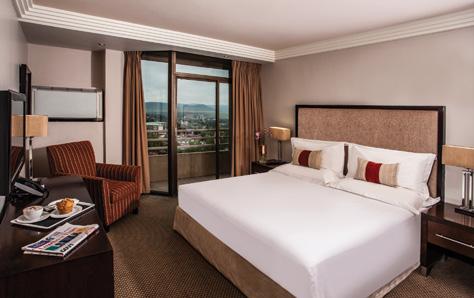
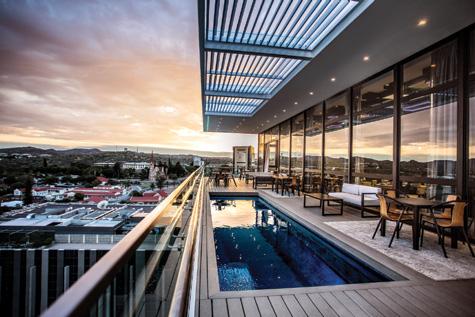
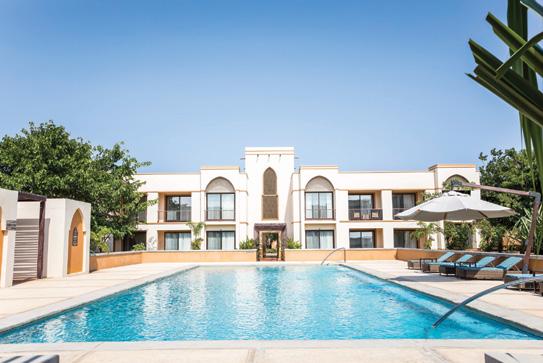
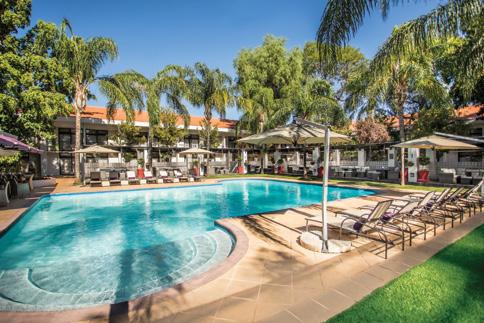
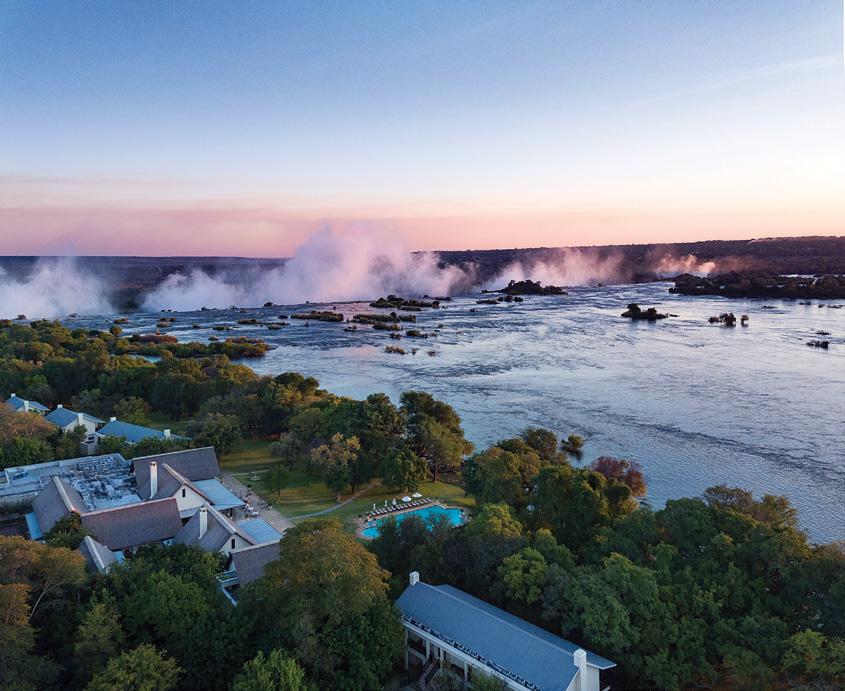
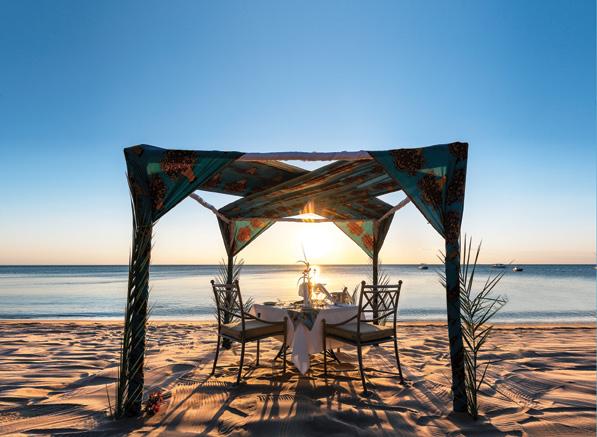
 THE ROYAL LIVINGSTONE VICTORIA FALLS ZAMBIA HOTEL BY ANANTARA
THE ROYAL LIVINGSTONE VICTORIA FALLS ZAMBIA HOTEL BY ANANTARA
ANANTARA BAZARUTO ISLAND RESORT Explore Southern Africa with Minor Hotels. Experience luxury, leisure and seamless business in some of Africa’s most stunning destinations. Minor Hotels Reservations Africa cro.jnb@minorhotels.com +27 010 003 8979
ANANTARA MEDJUMBE ISLAND RESORT

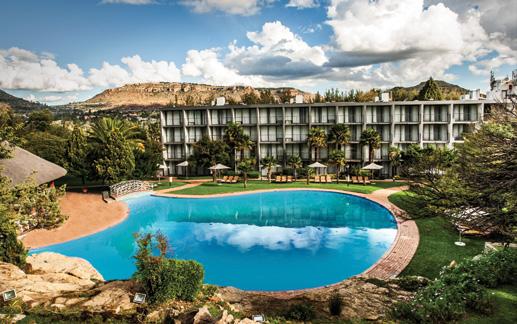


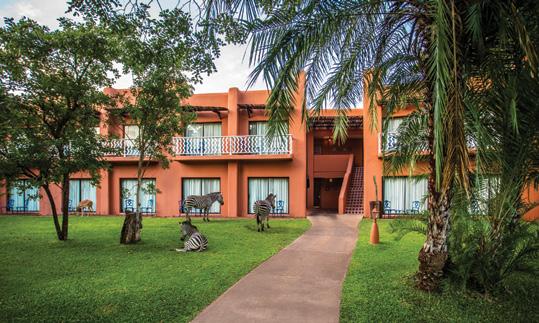


m inorh o t els. co m
AVANI WINDHOEK HOTEL & CASINO
AVANI PEMBA BEACH HOTEL
AVANI LESOTHO HOTEL & CASINO
AVANI GABORONE RESORT & CASINO
AVANI MASERU HOTEL
AVANI VICTORIA FALLS RESORT
Sticking to its guns
This gave us insights into the new-post-Covid trends that consumers might like,” explains Amir, underscoring that the pandemic itself was not an economic crisis; it was a health crisis that then resulted in an economic crisis as a result of lockdowns and other measures implemented by governments to address the immediate concern.
EMERGING TRENDS

Amir notes that some of the key trends identified by Minor Hotels included increased demand for experiences in more natural settings, with more conscious lifestyle choices being made by the consumer.
“Consumers started realising that the traditional CBD hotel didn’t really appeal to them anymore. They wanted to be sitting on the Zambezi River overlooking Victoria Falls and they could do the same Zoom meeting there as they could in a meeting or boardroom. This has also resulted in Minor Hotels rolling out technology solutions to meet this demand. We’ve launched a number of apps; we’ve looked at a lot of hybrid meetings, and we’ve launched many new measures in Africa that were already tried and tested in other markets. For us, Q1 2022 has been a tremendous quarter and we have some hotels that are doing 2019 numbers,” concludes Amir.
Like most hospitality groups, Minor Hotels was affected by the Covid-19 pandemic but an advantage of being a global group meant that it could manage the fall-out to some extent with early warning from other markets that were already affected.
“We saw from our operation in China around December 2019/January 2020 that something was afoot. From here, we communicated quickly around the globe so that before the impact really happened, we had already put in place a few measures to protect the business,” notes Amir.
He believes that having the cross-border communication in place was key in being able to maximise liquidity and prevent major losses for the hotel group.

OWNERSHIP ADVANTAGE
In Africa, where Minor Hotels has a significant footprint, the company owns many of the assets it operates, wearing two hats as both owner and operator. This meant that Minor
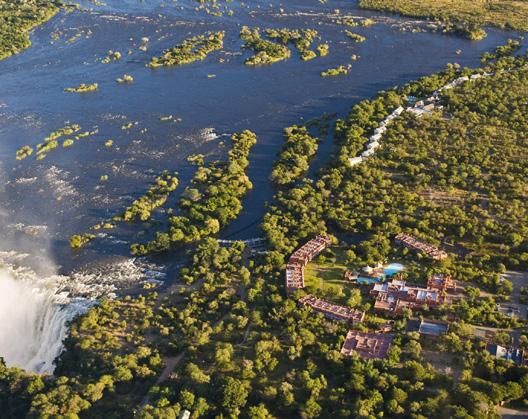
had a deeply vested interest in protecting not only its business but also its team members.
“We have been blessed because we have been able to retain most of our team throughout Covid, and also, some of the governments in the countries we work in have been very supportive, which is great,” enthuses Amir.
While the pandemic has understandably been challenging, Amir is upbeat and highlights the small glimmers of hope seen by the group.
“Using examples of other regions, such as the UAE and Indian Ocean islands like the Maldives and Seychelles, they opened up very quickly. In Dubai, we opened up in July 2020 and never closed – and it has since remained open for business.
34 • MEETINGS l MARCH/APRIL 2022 INDUSTRY INSIGHTS
While Covid-19 left many hospitality businesses scrambling for alternative ways of doing business, Minor Hotels was resolute in its approach. Meetings speaks to Amir Golbarg, senior VP: Operations for the company’s Middle East and Africa region, on how this has paid dividends through the pandemic.
Renowned as a popular tourist hotspot, Mauritius is famed for its luxury resorts and idyllic beach experiences. What some might not know, however, is that this Indian Ocean island is steadily growing as a sought-after destination for business events.
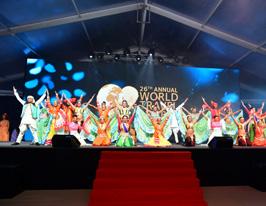
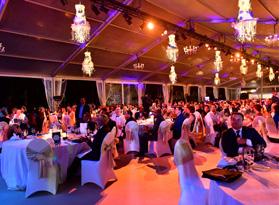
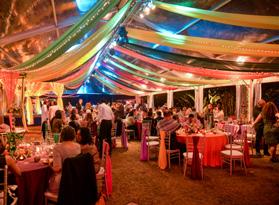
“The situation is improving with our borders open again. The demand is definitely there, and we are very confident and want to let everyone know that we are open for business!” enthuses Amrita, noting that many of the hotels have developed new product offerings to entice travellers to their shores.
“Our partners have new products – they’ve refurbished their hotels so this really is the right time to be here,” she adds.
South Africa is an important source market for Mauritius, and is the island nation’s fifth-largest market for leisure and among the top for MICE because of its relatively short-haul proximity.

INCENTIVISING INCENTIVES
The Mauritian government has an attractive programme in place to encourage organisers to consider the country as a destination for incentive travel. For 100 people with a minimum three-night stay, the Mauritian Tourism Board will contribute Rs100 000 (Mauritian rupees – around R33 000) to help cover the cost of the experience. If the number of travellers is above 250 people, Rs200 000 will be given towards expenses.
MICE IN
“Having been with the MTPA for the past seven years, I can tell you that the market has been doing very, very well,” says Amrita, highlighting that before the first cases of Covid-19 in January 2020, the market had grown by 18% year-on-year.
Due to the island’s small size and relative isolation, the Mauritian government was exceptionally swift with the implementation of its lockdown measures and protocols for the entry of international travellers. This also resulted in a range of digital offerings profiling the country as an exciting and vibrant destination.
“We were present across digital platforms and launched a virtual roadshow with virtual meetings, so we have been visible. It is very important to keep engaging,” explains Amrita.
MAURITIUS NOW
To showcase Mauritius, the MTPA launched the first phase of its Mauritius Now campaign in 2021. As part of the campaign, several webcams have been set up across the island’s popular areas so that those who are interested in visiting Mauritius can get a real-time feel for what it is like being on the island. Here, they can also find the latest news and learn more about the travel requirements to Mauritius, where to stay, and find answers to other FAQs. Phase 2 of the campaign will be launched as Mauritius moves closer to more of its population being fully vaccinated.
With close to 90% of its people fully vaccinated, and a third having received their boosters, Mauritius is recognised for having among the most stringent Covid-19 measures in the world.
www.theplanner.guru MEETINGS l MARCH/APRIL 2022 • 35
Mauritius’ MICE market is seeing an uptick in demand with a strong pipeline for 2023. Meetings speaks with Amrita Craig , marketer at the Mauritius Tourism Promotion Authority (MTPA), about what we can look forward to from the destination in the coming months.
DESTINATION PROMOTION
A trip down memory lane
Chef Adrian Vaughan, executive chef at Time Square, shares his culinary journey with Meetings magazine.
Food was in Adrian Vaughan’s blood from an early age. His family home was filled with the smells of baking, and Saturday afternoons were likely to have scones and lemon meringue pies coming fresh out of the oven.
Adrian started his career in the UK as a demi chef at Danesfield House Hotel in the larder section and joined a highly successful team of chefs led by Damian Broom and Lee Anstis. During his time at Danesfield House, he was lucky enough to work under other great British chefs such as Phil Walker, Lee Scott and Aiden Byrne. Aiden Byrne was, without doubt, the biggest influence on his career, changing how he viewed and used ingredients within the kitchen, in such a way that it pushed him out of his comfort zone and into kitchens around the UK that were producing the most modern and cutting-edge cuisine.
Adrian spent the next few years working around top restaurants in central London as well as the outskirts of the city, focusing his energy and skills on being able to deliver clean, modern food. The need to develop and learn the innovative techniques to create quality dishes directed his love for teaching and developing the younger chefs in the teams around him.
He moved to The Runnymede on Thames and stepped into the role of senior sous chef, spending over five years at the hotel. Here, he assisted in reopening
the hotel’s two restaurants and building a sustainable vegetable garden, taking the food to a higher standard under the direction of executive head chef David Coutts.

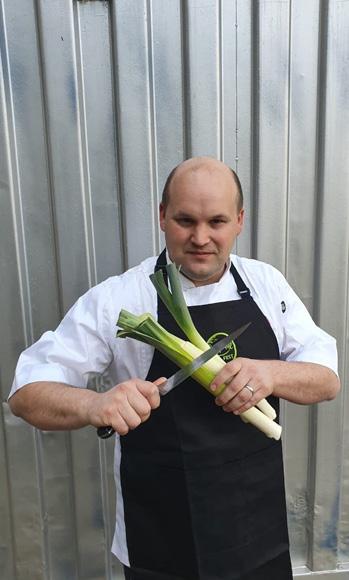
COMING TO SA
In 2012, Adrian moved to South Africa and opened the Maslow hotel in Sandton as the executive sous chef, Sun International’s first corporate hotel, with Dallas Orr.
Adrian worked alongside Jason Millar to create an immersive culinary experience in all areas of the business.



In 2017, he became part of the opening team at Time Square as the complex executive sous chef, opening 17 outlets on one day, during which he launched several new concepts and brands. This allowed Adrian to grow his experience into different restaurant operations and created new challenges that have evolved his understanding of the hospitality business.
In January 2018, Adrian opened the first tiered Maslow hotel and the state-of-the-art Sun Arena Time Square. He also created the culinary show Appetite Fest, which showcased the best of local and international chefs in 2018 and 2019 and saw nearly 45 000 people attend over the two years. The show further assisted in highlighting local culinary talents such as Katlego Mlambo, Lorna Maseko and brought MasterChef Australia judges Matt, Gary and George to meet their fans in South Africa.
36 • MEETINGS l MARCH/APRIL 2022 SOUNDBITE
Not all superheroes wear capes
AIPC superheroes
The SwissTech Convention Center recently launched a marketing campaign profiling the venue staff as a team of superheroes – which of course they are. It is a great showcase of demonstrating the key values when it comes to working in the events industry: passion, purpose and opportunities. It is also a message the events industry needs to get out in a better way, to attract the talent needed to bring organised events to the next level.
When talking to CEOs of convention centres worldwide who have reopened for business or are planning to do so shortly, there is one common topic: the shortage of labour.
There are several reasons for this situation. The two-year standstill resulted in qualified staff leaving the events industry, with the term ‘brain drain’ being used in many instances. Stageco, one of the world’s biggest stage builders, already sounded the alarm bell: nobody has enough qualified staff for the upcoming concerts and festivals. In addition, the quarantine rules still in place in many countries can have a considerable and unpredictable impact on staff availability. Lastly, there is of course the impact of the Great Resignation, whereby people question their relationship to work – and here there could be an opportunity for the event industry to attract talent.
PURPOSEFUL WORK
The Great Resignation in the US shows no signs of letting up in 2022. The same is happening in Western Europe. Employers recognise it is difficult to attract and retain talent with employees rethinking not just how they work but why they work.
Talking to the participants of Future Shapers, the AIPC’s talent programme, on why they like working in the events industry, the exact opposite can be heard – it is all about values like passion, purpose and

personal growth. Think of the sense of purpose, for example, when you play a role in making COP26 happen – however challenging it might be – you are helping to address global climate change in an unprecedented way. How is that for a mental boost? And there are many examples like COP26, where bringing communities together results in innovation, collaboration or breakthroughs that impact people across the globe.
The second big advantage of the events industry is the wide range of opportunities for personal growth on all types of levels. For me, personally, the human side of events – meeting people from different cultures, discovering communities and industries unknown, seeing the variety in interactions – has made me grow enormously as an individual. But there are also the various ‘classic’ growth opportunities, both vertical and horizontal. Moving from catering to sales to operations to finance? Perfectly possible in a convention centre.
The third key value is of course passion. Event professionals have a passion for people, and it is a passion shared by all parties involved in creating those unique moments that are the hallmark of great events. When the magic of organised events happens, the emotions of the people involved can be best compared to the NASA control room when a rocket is successfully launched – joy, pride and a sense of belonging to something very special.
As an industry, we should consider the Great Resignation as a unique opportunity to attract talent looking for purpose, personal growth and passion – and we should showcase all the opportunities we can offer.
The participants of Future Shapers will be part of that effort as ambassadors and role models. And, as AIPC, we will continue to lead the way in making sure their story is heard.

INDUSTRY VIEWS
SVEN BOSSU is the CEO of the International Association of Convention Centres (AIPC).
TALKING POINTS
www.theplanner.guru MEETINGS l MARCH/APRIL 2022 • 37
Don’t overlook the importance of showcasing the efforts and achievements of our implementors and workers as a means of retaining valuable talent, writes Sven Bossu.
Meet the new EGF team
INDUSTRY VIEWS
Our plans for 2022
It is with excitement that I have stepped into the role of chairperson of the Event Greening Forum this year. I am leading a new team – a mix of seasoned committee members and new faces – who will build on the great work done so far. The industry and EGF members can expect consistency as well as new offerings that will not only add value to members and their businesses but tangibly formalise, elevate and mainstream greening at events.
I’m inspired to lead with a spirit of inclusivity, collaboration and partnership for the benefit and promotion of green events first and environmental sustainability more broadly.
The EGF 2022 management committee is:
• Chairperson: Morwesi Ramonyai (Borena Energy)
• Vice chairperson: John Arvanitakis (Chat’r)
• Treasurer: Justin Hawes (Scan Display)
• Secretariat: Lynn McLeod (individual)
• Education and training chairperson: Geraldene Parmassar (Technology Partners)

INDUSTRY VIEWS
Don’t miss a beat
• Marketing chairpersons: Gavin Burgess (Technology Partners) and Neo Mohlatlole (7 Colours)
• Membership chairperson: Chantal Croaster (Cape Town International Convention Centre)

• Grace Stead (Steadfast Greening)
• Lethabo Kgotse (EGF)
• Louis Nel (Louis The Lawyer)
• Stephanie Brand (Technology Partners).
We are joined by the EGF’s associate member representatives, who are:
• Betty Sichivula (AAXO)
• Doug Rix/Lee-Ann Alder (EXSA)
• Lee Zama (Fedhasa)
• Janet Landey (IFEA Africa)

• Helen Brewer (The MICE Academy)
• Glenton de Kock (SAACI)
• Kevan Jones (SACIA/TPSA)
• Bernard Sebothoma (SA Roadies).
To find out more about our organisation and offering, please visit www.eventgreening.co.za.

This year sees the demand for human connection and engagement growing stronger after the throes of self-isolation, quarantine and imposed lockdowns due to Covid-19. Businesses are now tasked with showing up on the exhibition floor and supporting their customers.
With the world hiding behind screens, businesses resorted to emoticons and click rates instead of social cues as key indicators of buying behaviour. But during face-to-face interactions, we look for nonverbal behaviour to reveal the consumer’s intentions; these include facial expressions, hand movements, body posture, and eye gaze. These nonverbal cues empower us with information to guide our interaction, dispel negativity and close the sale.
GUIDED BY SCIENCE
According to an article in the Neuroscience Behavioural Review, “During face-to-face social interactions, people
tend to automatically align with, or mimic, their interactor’s facial expressions, vocalisations, postures and other bodily states.” This mimicry leads to a stronger sense of empathy and a feeling of belonging. Exhibitions and events draw together like-minded attendees searching for the best products and services. They have engaged with each other and the products they want online but want to seal the deal in person and test-drive their assumptions of the products in real time. As referenced in the Neuroscience Behavioural Review, attendees also mimic each other’s behaviour. Human curiosity drives attendees to join the queue, be part of the audience, and huddle with the crowd for fear of missing out – the strong synchronisation between attendees at an exhibition inspires a positive buying environment.
We all have so often heard the saying, “Don’t judge a book by its cover,” but face-to-face interaction leads to intuitive judgements of consumers and brands that are unavoidable and highly useful in closing a sale.
38 • MEETINGS l MARCH/APRIL 2022 www.theplanner.guru TALKING POINTS
With the events industry showing signs of a rebound after a devastating two years, the EGF is keen to see greening and sustainability return to focus as climate change remains the bigger pandemic of our time, writes Morwesi Ramonyai .
MORWESI RAMONYAI is the chairperson of the Event Greening Forum (EGF).
The past two years have presented businesses with the opportunity to build relationships online and in social media, but now it’s time to drive sales through physical interaction, writes Projeni Pather
Non-verbal cues are essential to drive sales
PROJENI PATHER is the chairperson of the Association of African Exhibition Organisers (AAXO) and the MD of Exposure Marketing.
INDUSTRY VIEWS
Youth development
Shaping our tomorrow
Many professionals in the business events industry acknowledge the challenges we are facing as a result of the Covid-19 pandemic and its impacts. At SAACI, we are particularly concerned that students and graduates will be entering the world of work soon with very little hands-on experience.
To this end, the national board of SAACI has undertaken to create a youth platform within the association that is specifically targeted at young students studying towards a career in business events and the broader tourism industry.
The platform aims to empower students and new entrants in the industry and bridge the knowledge and skills gap between academia and industry. The vision is to enhance relevant skills and employment opportunities in the industry. In line with this, SAACI challenged students to come up with a brand name inclusive of an identity for the initiative.

Students could work in groups of four to six, or individually, to develop a SAACI youth brand name, logo,

INDUSTRY VIEWS
Event industry rollercoaster
A ride of note
vision statement, mission statement and tagline as part of this initiative to drive youth participation in the association.
After closing in September 2021, winners were recently chosen and announced. They are as follows:
• Nadia Ruthanne Cloete, events assistant at Saretec (CPUT)
• Darren Vaudin, currently working for a private resort in Seychelles, and in events and service management
• Jade Dumas, self-employed
• Mbali Ndlela, unemployed graduate.
As an association, we view this competition as a building block for young professionals and students within our industry to understand the current ecosystem of the business events industry.
SAACI looks forward to rolling out other initiatives to better support the growth and development of youth within South Africa and, of course, the business events and tourism industry.
The past two years have been fraught with uncertainty for South Africa’s events industry. Kevan Jones puts forward solutions for our country’s government to consider.


Over the last two years, the Covid-19 pandemic has decimated the events industry. To survive, many of the companies active in our sector have had to trim down, lay off staff to cut costs, sell off gear to generate cash, and borrow money from the bank to secure the funds needed to keep their heads above water.
Personal bills have gone unpaid, and I know several business owners who have been forced to take out a second mortgage on their homes to keep their doors open and business ticking over.
Nobody expected our sector to be forcibly shut down for two years, and one of the questions we’re going to have to face as we reopen is how we are going to finance the revival of the events sector when our resources are so thinly stretched.
With commercial opportunity seemingly on our doorstep, banks see the events industry as a high-risk sector and have little interest in providing loans without surety that cover their debt. And that’s hardly surprising when the threat of a fifth wave of Covid-19 is looming over us.
GOVERNMENT ASSISTANCE
As I see it, there are two practical solutions required from government.
The first is for government to partner with insurers to offer a cost indemnification insurance scheme that will make cover available against the cancellation, postponement, relocation or abandonment of events due to future restrictions in response to Covid-19. This would support live events across the country that are at risk of being halted or delayed due to an inability to obtain Covid-19 cancellation insurance. Cover could be purchased alongside standard commercial events insurance for an additional premium.
The second requirement is for government to provide a debt-relief and grant funding scheme to provide grants and soft loans to help rebuild the sector’s capacity.
These interventions will support the sector’s economic recovery from the Covid-19 crisis by giving event organisers the confidence they need to plan for the future.
www.theplanner.guru MEETINGS l MARCH/APRIL 2022 • 39
#INSIDEINDUSTRY
KEVAN JONES is the executive director of the Southern African Communications Industries Association (SACIA).
Glenton de Kock explains how SAACI is creating a platform for youth development that aims to build the future leaders of our industry.
GLENTON DE KOCK is the CEO of the Southern African Association for the Conference Industry (SAACI).
AIM
high
With so many businesses within the meetings and events industry still struggling to get back on their feet, it is clear that mediocrity just won’t do in this day and age. Instead, planners, organisers and marketers need to think on their feet and push the boundaries on how they can deliver high-impact, highvalue solutions.

Let’s consider what our clients really want; they want to see people engaging positively around their brand and for this engagement either to lead to an increase in sales and demand, or to raise awareness on a specific initiative or campaign. Obviously, volume is important but it isn’t everything because not everyone can make decisions on aspects
such as purchases or partnering with the brand in question on new business endeavours and opportunities.
KNOW YOUR CUSTOMER
Imagine being able to guarantee that whoever you were inviting to your event really wanted to be there and had a specific reason to do so... It is entirely possible to achieve this but it takes a lot more work than just a spray-andpray invitation sent to an entire database. Getting to know your target audience is important but more than this, we should strive to be clear on why we are targeting a specific type of candidate to attend our business event or meeting experience – to the benefit of our clients, ourselves, and
the individuals being targeted. If you as an organiser or planner can get this right, it means you have already conquered a major part of your objectives because the people you are targeting will now be on board and aligned to what it is you want to achieve. If they don’t see this as being a good fit, it will then be abundantly apparent from the onset that you are perhaps barking up the wrong tree; however, I believe the pros of this far outweigh the cons.
SEAL THE DEAL
Reminding attendees why they are visiting our business events will help keep them focused on what it is they are there to achieve. Making easy-to-understand, shareable summaries of the dialogues taking place that are then open to further discussion will also keep the conversation steered in the right direction. Ensure there are follow-ups to each point, as action points for any consecutive agendas, as this will also create structure around the set objectives.
40 • MEETINGS l MARCH/APRIL 2022 www.theplanner.guru
MISS MEET
With the business events and tourism industry clearly demonstrating the resilience to push through the knockon effects of the pandemic, Miss Meet urges role players within this space to start recognising its potential.
INCENTIVE






























Looking for new and exciting destinations?

The Incentive Planner is jam-packed with fresh ideas and top tips to turn any incentive trip into a memorable experience. Out in March and September with Meetings.
The Exhibition Planner is an essential tool for exhibitors. Information is packaged in an easily digestible format addressing the entire process of planning and arranging a show stand, what to do pre-show, during and post-show. Published annually.
+27 (0)11 233 2600













































subs@3smedia.co.za theplanner.guru







theplanner.guru is a one-stop platform for finding venues and suppliers. It’s where you can read the hottest industry tips and trends as well as source event planning tools and gain insight from valuable information in the MICE Hub. Plan your event by using the platform’s event boards and keep up-to-date with the daily newsletters. Use these resources to take your events from great to flawless.
Packed with advice, handy tips, tools, checklists and event planning insight from leading industry experts and combined with the comprehensive listings, The Meetings & Event Planner is essential if you’re organising any type of event. Published annually.
meetings
This alternative monthly publication investigates new trends, ideas and strategies relevant to the meetings and events industry to keep you ahead of the planner pack. Meetings provides a platform for branding and promoting venues and service providers to the heart of the South African conferencing and event industries.
3S Media gives YOU the competitive edge as a MICE planner

www.theplanner.guru























@theplannerguru The Planner @theplannerguru
A Convergence of Business and





Let Ideas Expand Beyond the Office
We have the freshest of air, an abundance of wildlife, the best adventure tracks and trails, breathtaking sights and scenery, but most importantly, we have conference centres in these magnificent tranquil surroundings.


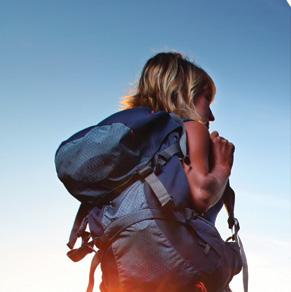
Didima Conference Centre accommodates delegates from 120 classroom style, 60 U-shape style to 120 seated cinema style configuration. Ntshondwe Conference centre offers a cinema style seating arrangement for up to 140, a lecture style for 90 or a single U-shaped for 45 delegates. Ntshondwe’s two breakaway rooms offers a cinema style seating arrangement for 30, lecture style for 18 and single U-shape for 16 delegates. Both conference facilities offer various accommodation options, are fully serviced and can comfortably be adapted from one-day events to multi-day workshops.
The Perfect Wedding
Make your big day perfect with unlimited privacy, breathtaking scenery, birdlife, wildlife, scenic trails, comfortable accommodation, delicious food and personalised service excellence
C on se r va t ion, Pa rt n ers h i p s & Ec otou r s m T: + 27 ( 0 ) 33 845 1000 E: b ook i n g s@k z n wildli fe.co m O n li ne b ook i n g : b ook i n gs .k z n wildlif e.com We b: www .k z n wildlif e.co m Adventure Didima Conference Centre & Wedding Venue, Cathedral Peak, Maloti-Drakensberg Park World Heritage Site: (036) 488 8000 Ntshondwe Conference Centre & Wedding Venue, Ithala Game Reserve: (034) 983 2540 Your Ultimate Adventure Destination
#LetsGoKZNWILD





 first diamond, the Eureka, in Hopetown in 1867.
first diamond, the Eureka, in Hopetown in 1867.




























































































 THE ROYAL LIVINGSTONE VICTORIA FALLS ZAMBIA HOTEL BY ANANTARA
THE ROYAL LIVINGSTONE VICTORIA FALLS ZAMBIA HOTEL BY ANANTARA




















































































